32 Anti-Inflammatory Foods That Can Transform Your Health
In a world where chronic inflammation is linked to everything from arthritis and heart disease to autoimmune conditions and brain fog, the food you eat can be a game-changer for your health. The right foods don’t just nourish your body—they can actively reduce inflammation, ease pain, boost immunity, and enhance overall well-being. That’s why we’ve updated our list to 32 powerhouse anti-inflammatory foods that can help transform your health. By incorporating nutrient-dense, antioxidant-rich, and anti-inflammatory foods into your daily diet, you can support your body’s natural healing process while protecting against long-term disease. Whether it’s vibrant fruits, omega-packed seafood, or inflammation-fighting spices, these foods can help you feel more energized, balanced, and resilient. And the best part? Eating for inflammation doesn’t have to be restrictive or complicated—with a few simple swaps, you can start making choices that naturally support your health while enjoying every bite.
1. Turmeric
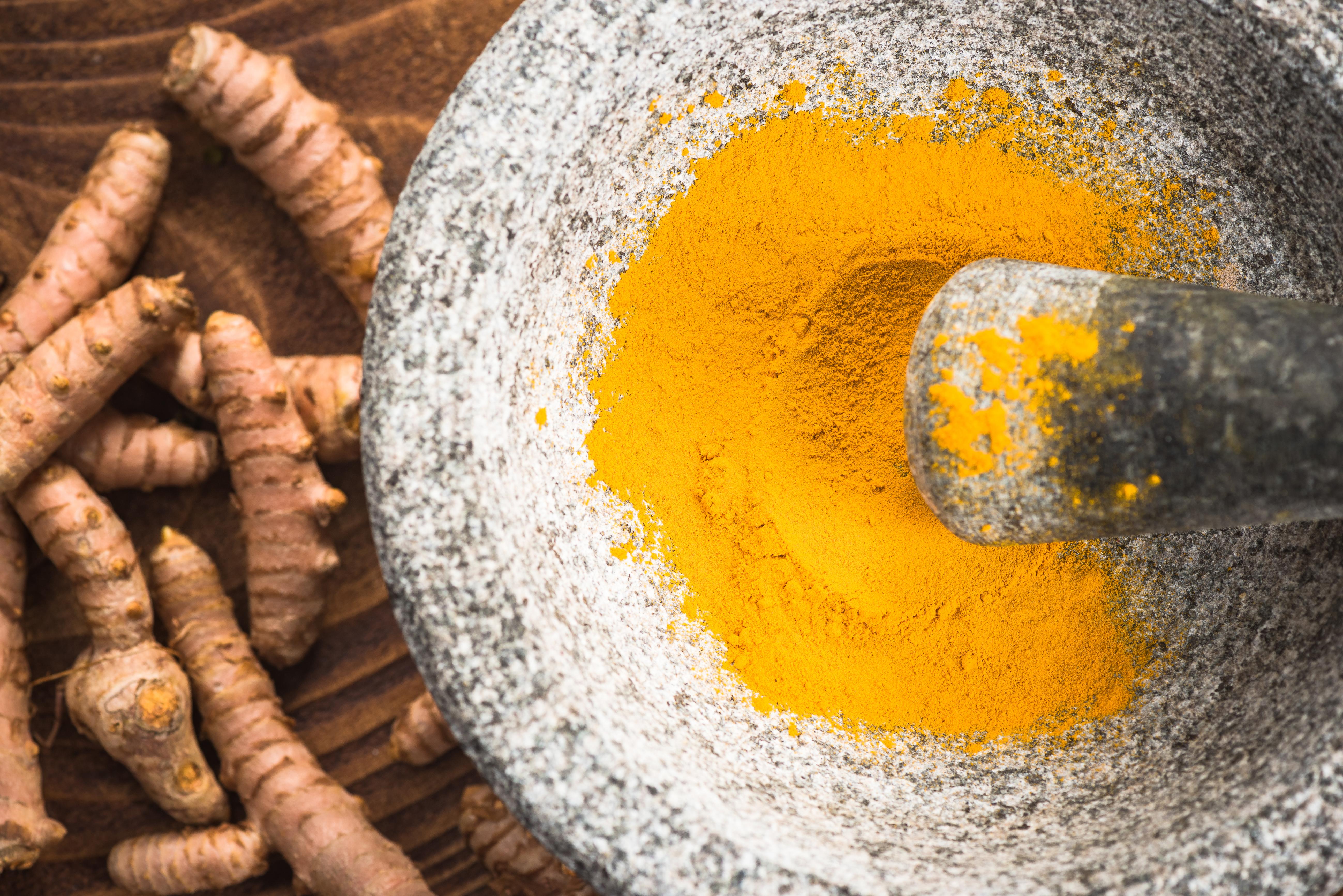
Turmeric is a vibrant yellow spice that has been used in traditional medicine for centuries. Its active compound, curcumin, is one of the most powerful natural anti-inflammatory agents known. Curcumin works by blocking certain molecules and enzymes that trigger inflammation in the body, making it particularly effective for reducing joint pain and stiffness associated with conditions like arthritis. Studies have also linked turmeric to improved brain function and a lower risk of heart disease. Incorporating turmeric into your diet is simple and versatile. Add it to curries, soups, or stews for a warm, earthy flavor. For a health-boosting drink, try golden milk, a comforting mix of turmeric, milk, and spices. You can also sprinkle turmeric into smoothies or use it to season roasted vegetables. To enhance its absorption, combine turmeric with black pepper, as piperine in the pepper increases curcumin's bioavailability.
2. Ginger
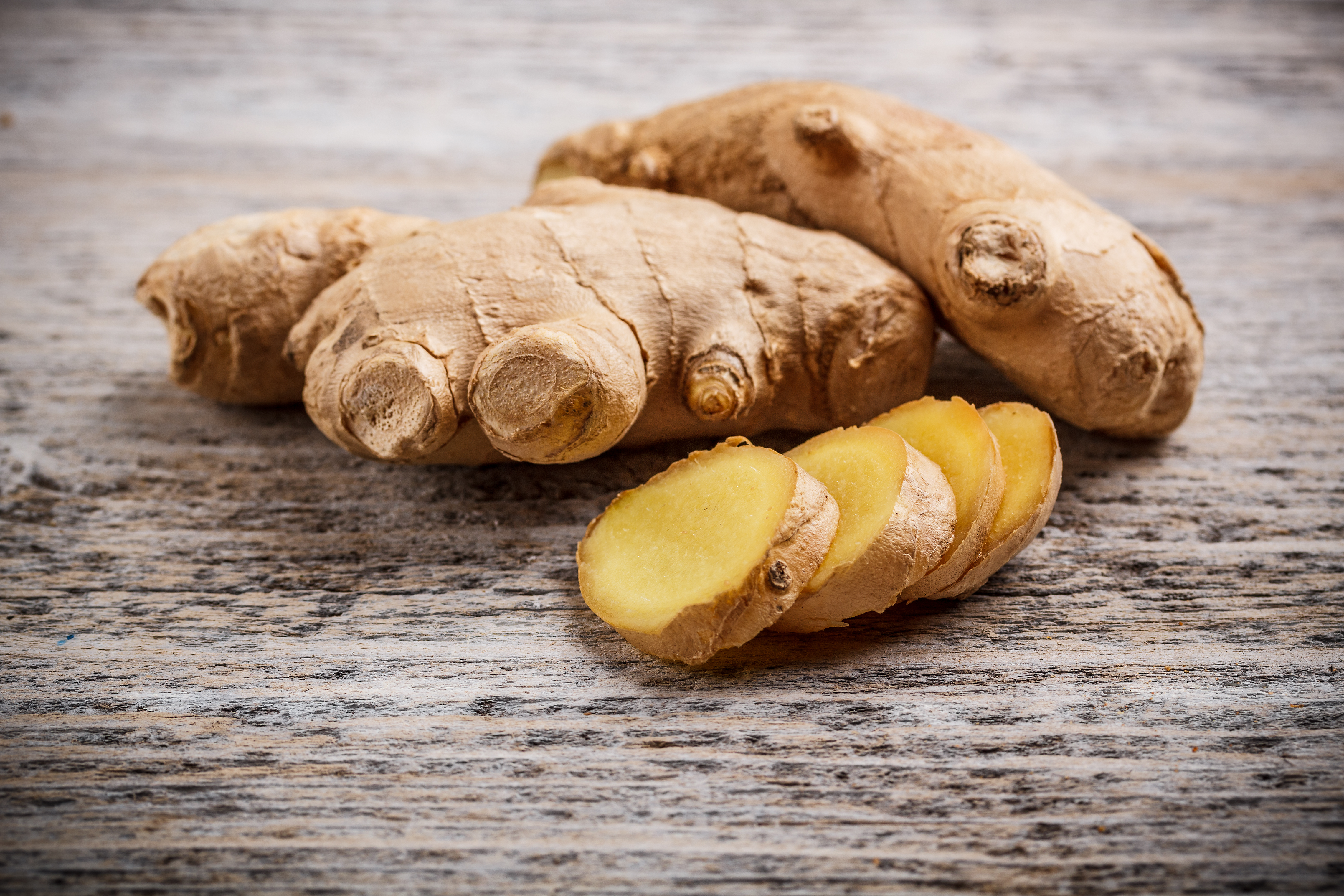
Ginger is a spicy, aromatic root that packs a powerful punch when it comes to reducing inflammation. It contains gingerol, a bioactive compound with anti-inflammatory and antioxidant properties. Ginger has been shown to alleviate pain and swelling in conditions like osteoarthritis and is also effective in calming the digestive system, making it a natural remedy for nausea and bloating. Adding ginger to your diet is easy and flavorful. Grate fresh ginger into teas or smoothies for a refreshing kick. Use it in marinades or stir-fries to add depth to your dishes. Ginger pairs well with both sweet and savory recipes, making it a versatile ingredient in cookies, cakes, soups, and sauces. Keep fresh ginger on hand to add a quick, anti-inflammatory boost to your meals.
3. Berries
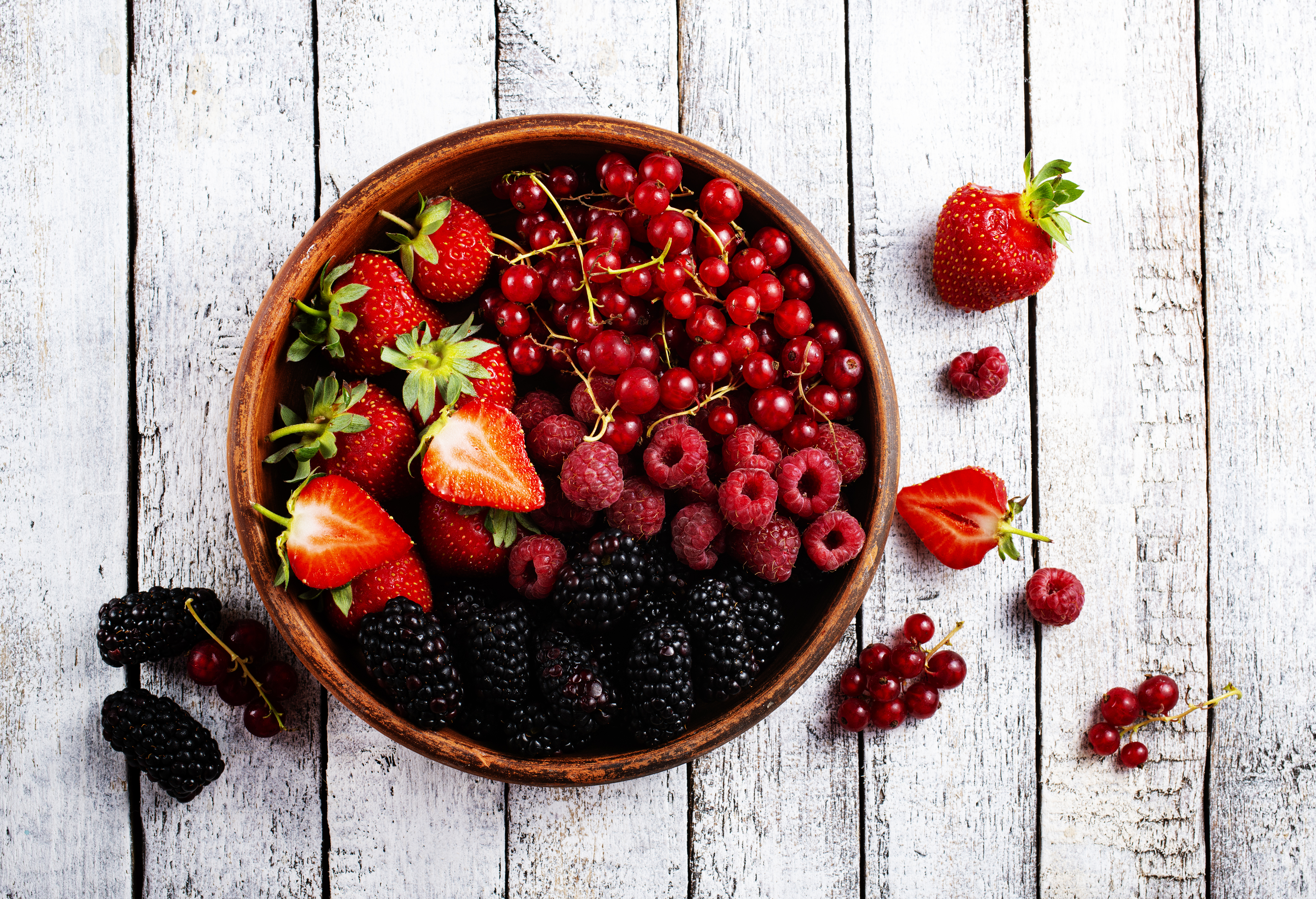
Berries are small but mighty when it comes to fighting inflammation. Blueberries, strawberries, raspberries, and blackberries are all loaded with antioxidants, particularly anthocyanins, which are responsible for their vibrant colors. These antioxidants work to neutralize harmful free radicals in the body, reducing oxidative stress and lowering inflammation. Regular consumption of berries has been linked to improved brain health, better heart function, and a reduced risk of chronic diseases like diabetes. Enjoy berries fresh as a snack, blend them into smoothies, or sprinkle them over yogurt and oatmeal. Frozen berries are a great option when fresh ones are out of season, and they retain their nutritional value. For a delicious treat, bake berries into muffins or mix them into salads for a burst of sweetness. Their versatility and health benefits make them an easy addition to any meal.
4. Leafy Greens
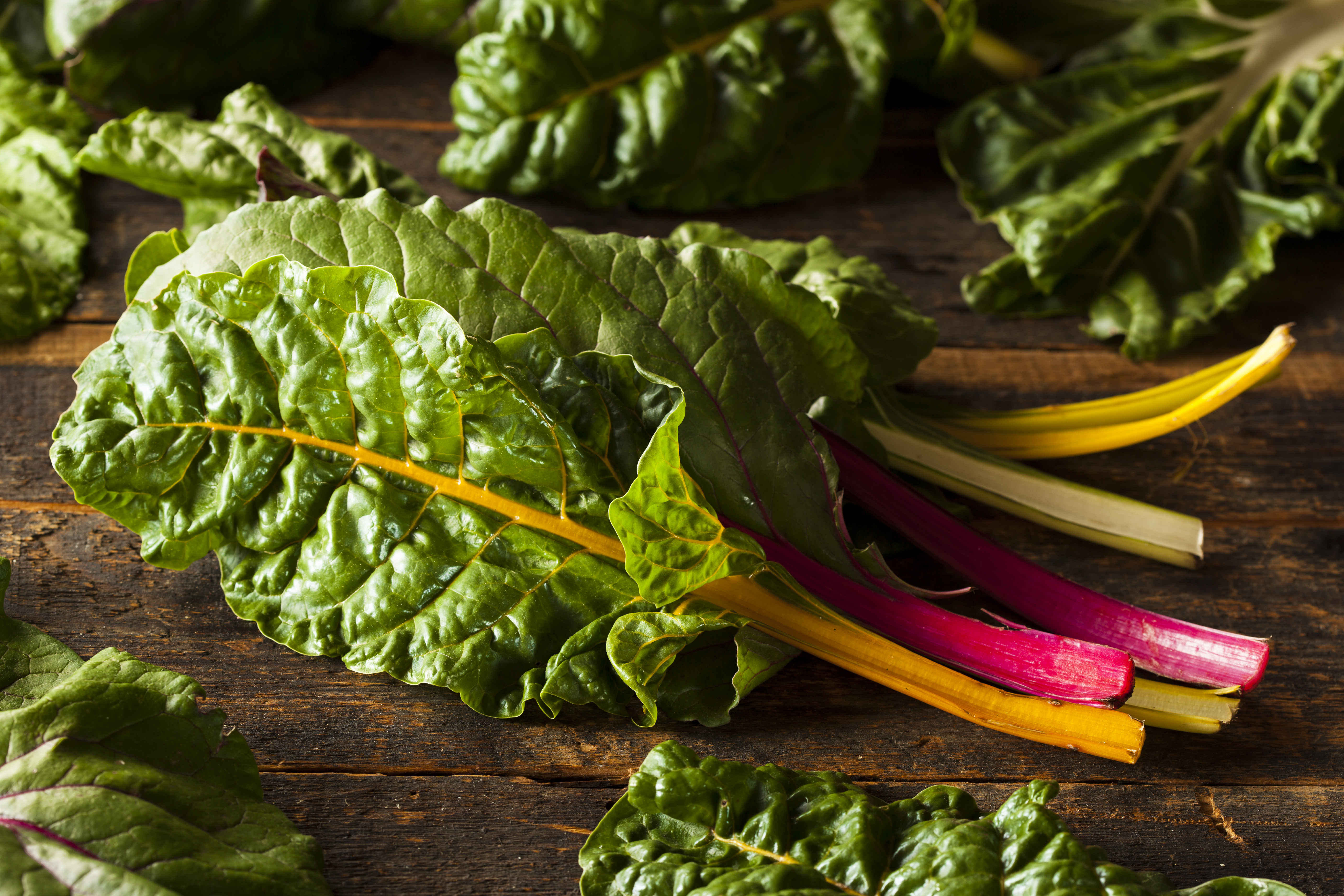
Leafy greens like spinach, kale, Swiss chard, and arugula are some of the most nutrient-dense foods you can eat. They are rich in vitamins A, C, and K, as well as folate and magnesium, which are all essential for reducing inflammation and supporting overall health. These greens are also packed with antioxidants like beta carotene, which protect the body from cellular damage caused by free radicals. Incorporate leafy greens into your diet by adding them to salads, smoothies, or soups. Sauté them with garlic and olive oil for a quick and delicious side dish, or toss them into a stir-fry for added nutrients. You can also use leafy greens as a base for grain bowls or wraps. Their mild flavor makes them a versatile ingredient that can be easily integrated into any meal.
5. Fatty Fish
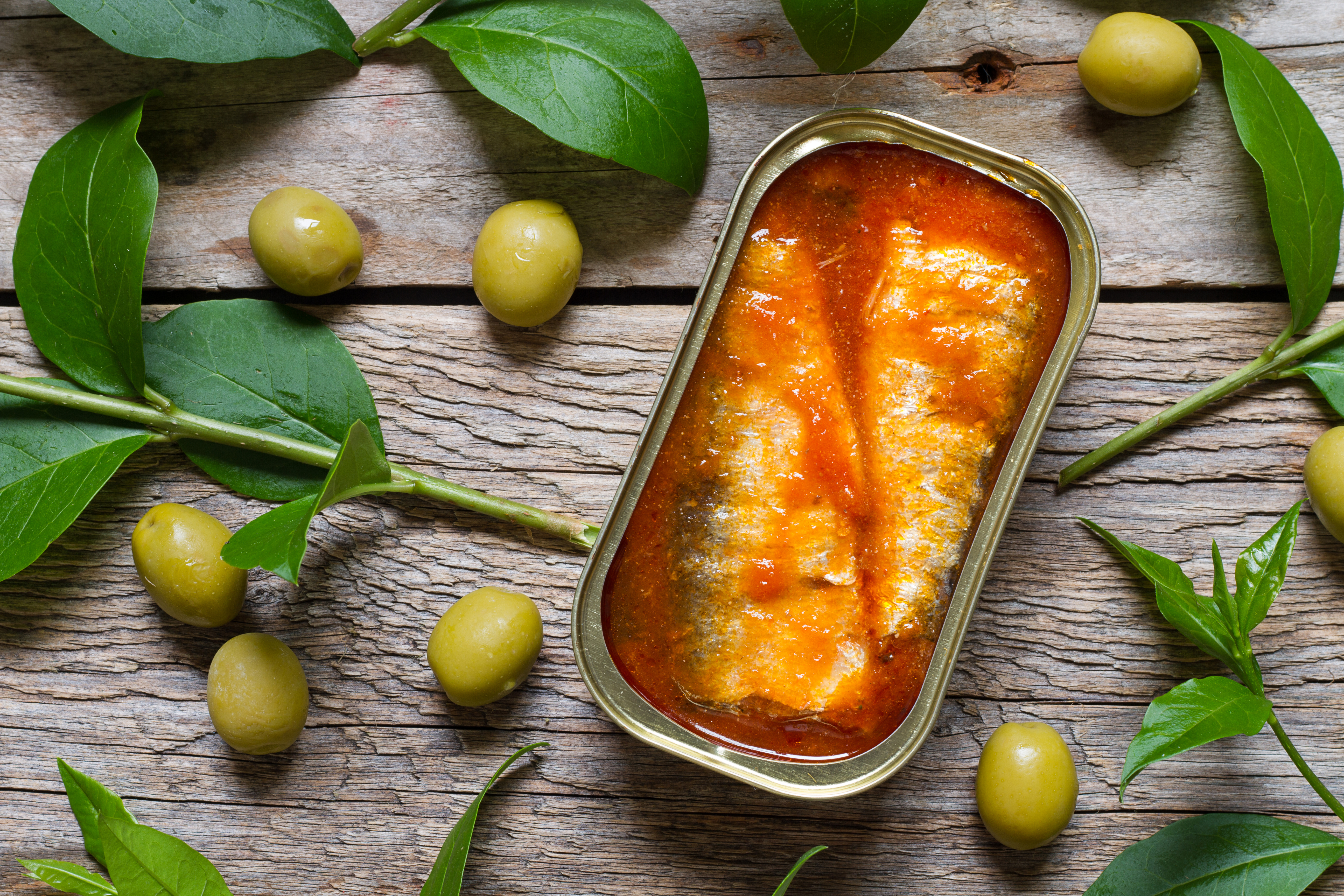
Fatty fish such as salmon, mackerel, sardines, and tuna are rich in omega-3 fatty acids, which are renowned for their anti-inflammatory properties. Omega-3s, particularly EPA and DHA, help reduce the production of inflammatory compounds in the body, making them effective for managing conditions like rheumatoid arthritis, heart disease, and even depression. Include fatty fish in your diet by grilling, baking, or pan-searing it with your favorite herbs and spices. Smoked salmon makes an excellent addition to salads or bagels, while canned sardines and tuna are convenient options for quick meals. If you’re plant-based, consider incorporating algae-based omega-3 supplements to ensure you’re reaping the anti-inflammatory benefits of these essential fats.
6. Olive Oil
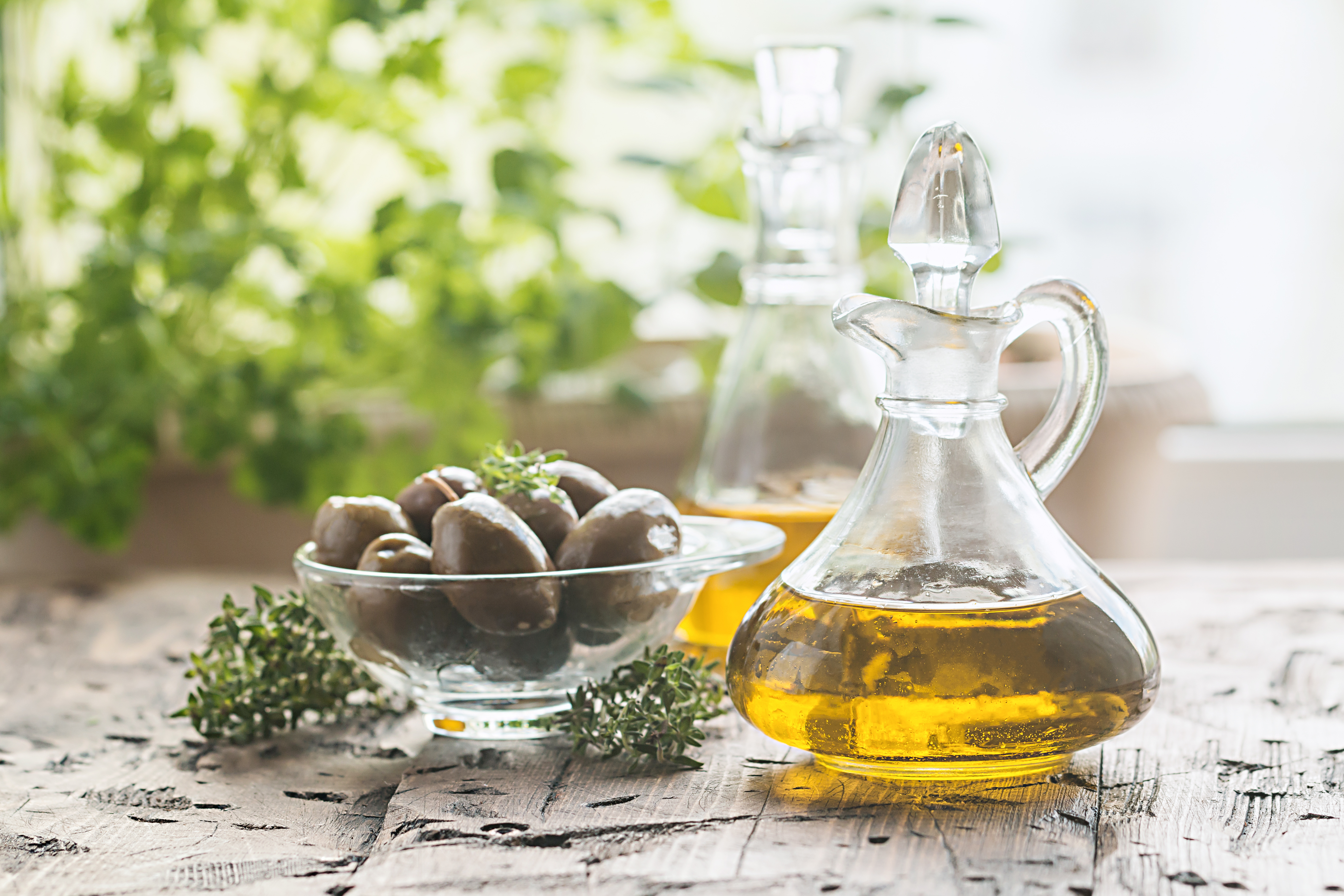
Extra virgin olive oil is a cornerstone of the Mediterranean diet, celebrated for its heart-healthy fats and anti-inflammatory effects. It contains oleocanthal, a compound that acts similarly to ibuprofen in reducing inflammation. Regular consumption of olive oil has been linked to a lower risk of chronic diseases like heart disease, diabetes, and Alzheimer's. Drizzle olive oil over salads or roasted vegetables, or use it as a base for homemade dressings and marinades. It’s also an excellent choice for low-heat cooking and adds a rich flavor to soups and stews. For the best health benefits, opt for high-quality, cold-pressed extra virgin olive oil, which retains more of its antioxidants and beneficial compounds.
7. Tomatoes
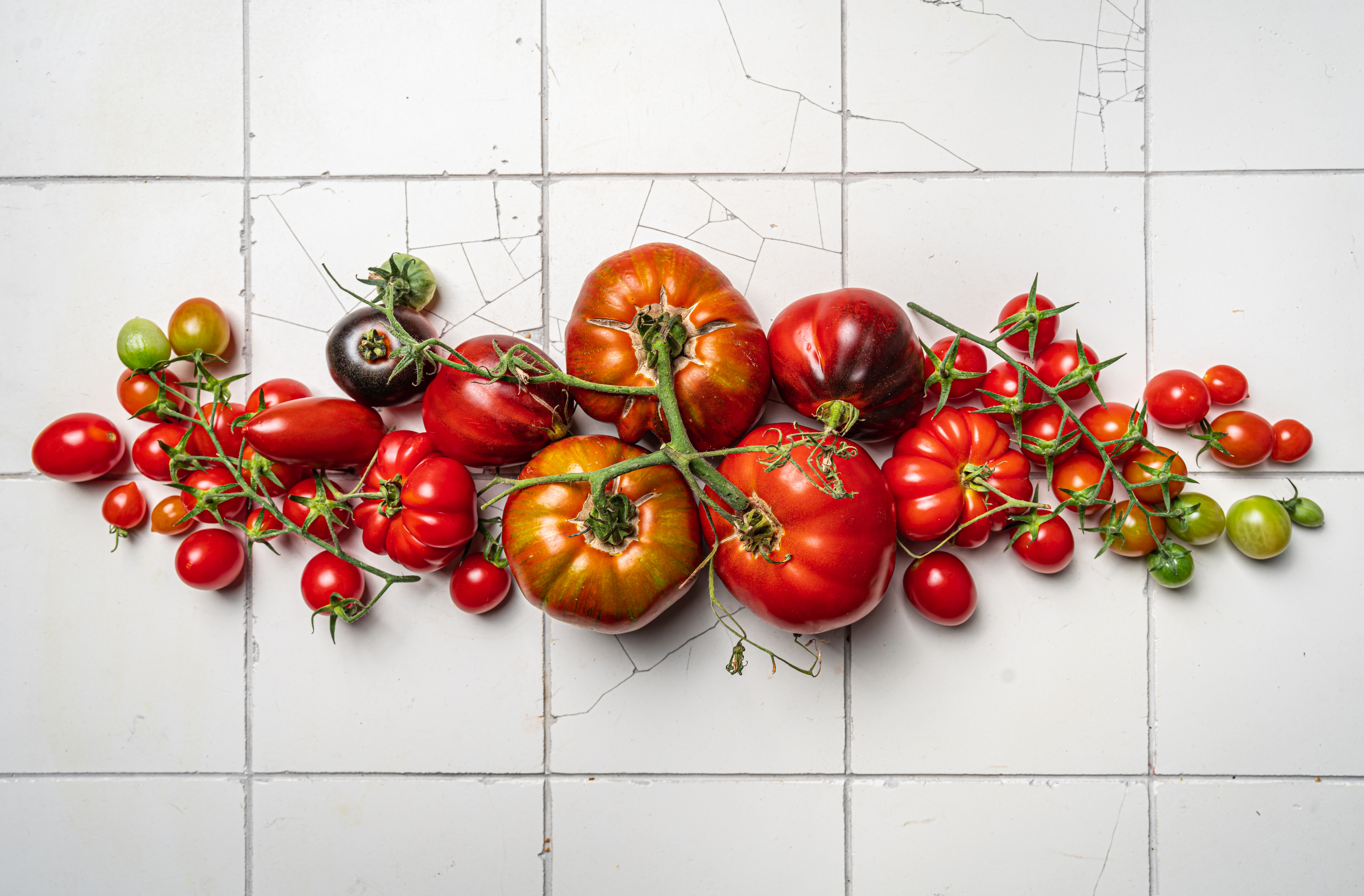
Tomatoes are a delicious and versatile anti-inflammatory food, thanks to their high content of lycopene, a powerful antioxidant. Lycopene has been shown to reduce inflammation in the lungs, heart, and other organs. Cooking tomatoes enhances their lycopene content, making tomato-based sauces, soups, and stews particularly beneficial. Add fresh tomatoes to salads, sandwiches, or wraps for a burst of flavor. Roasted cherry tomatoes make a sweet and savory side dish, while sun-dried tomatoes add a concentrated flavor to pastas and pizzas. Whether fresh or cooked, tomatoes are a simple way to add anti-inflammatory benefits to your meals.
8. Nuts and Seeds
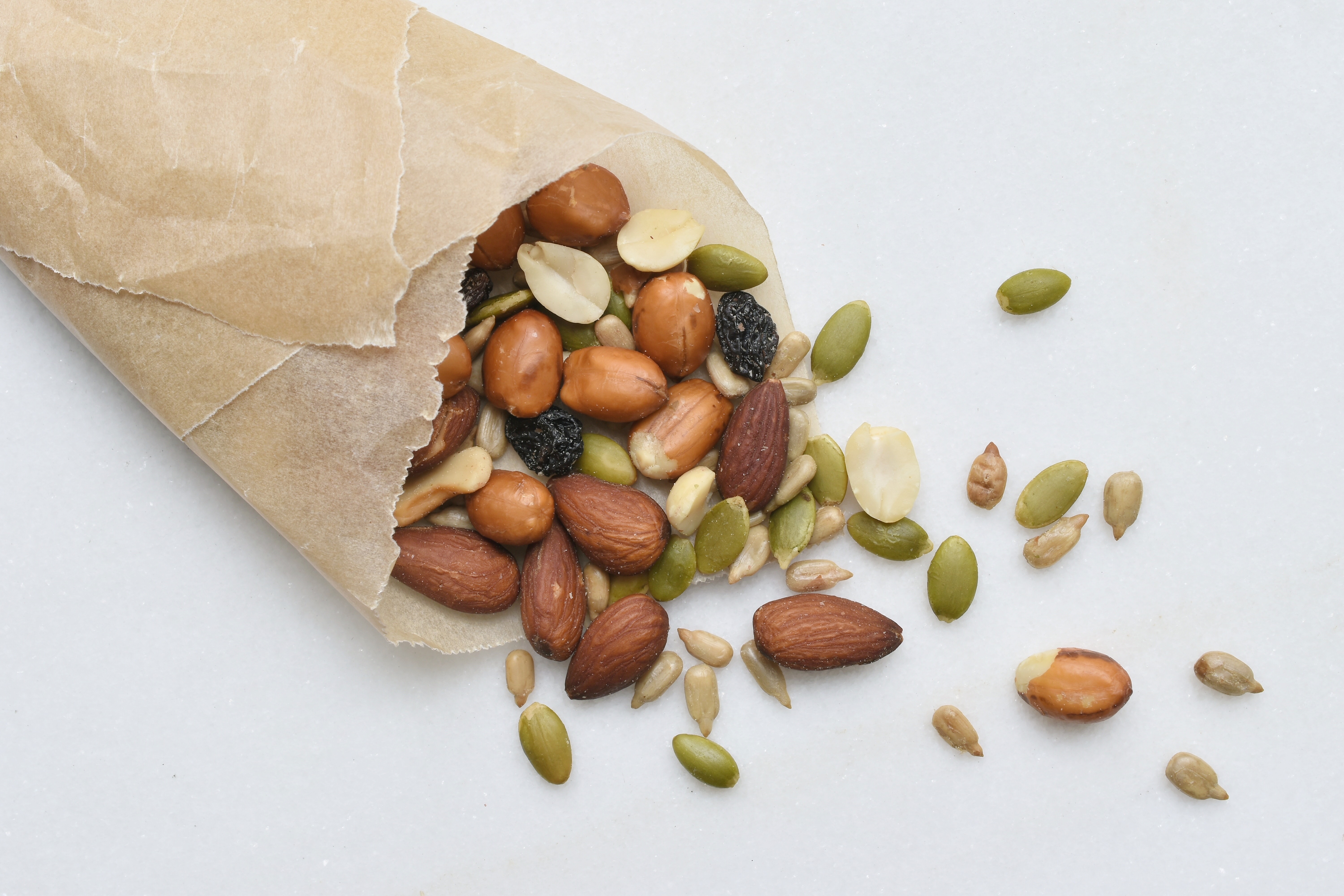
Nuts and seeds like almonds, walnuts, chia seeds, and flaxseeds are nutrient-dense powerhouses loaded with healthy fats, fiber, and antioxidants. They are particularly rich in alpha-linolenic acid (ALA), a type of omega-3 fatty acid that helps reduce inflammation and support heart health. Snack on a handful of nuts or use them as a topping for yogurt, oatmeal, or salads. Chia seeds and flaxseeds can be added to smoothies or mixed into baked goods for an extra nutritional boost. To make them even more flavorful, try roasting nuts with a pinch of turmeric or cinnamon for a spiced, anti-inflammatory treat.
9. Garlic
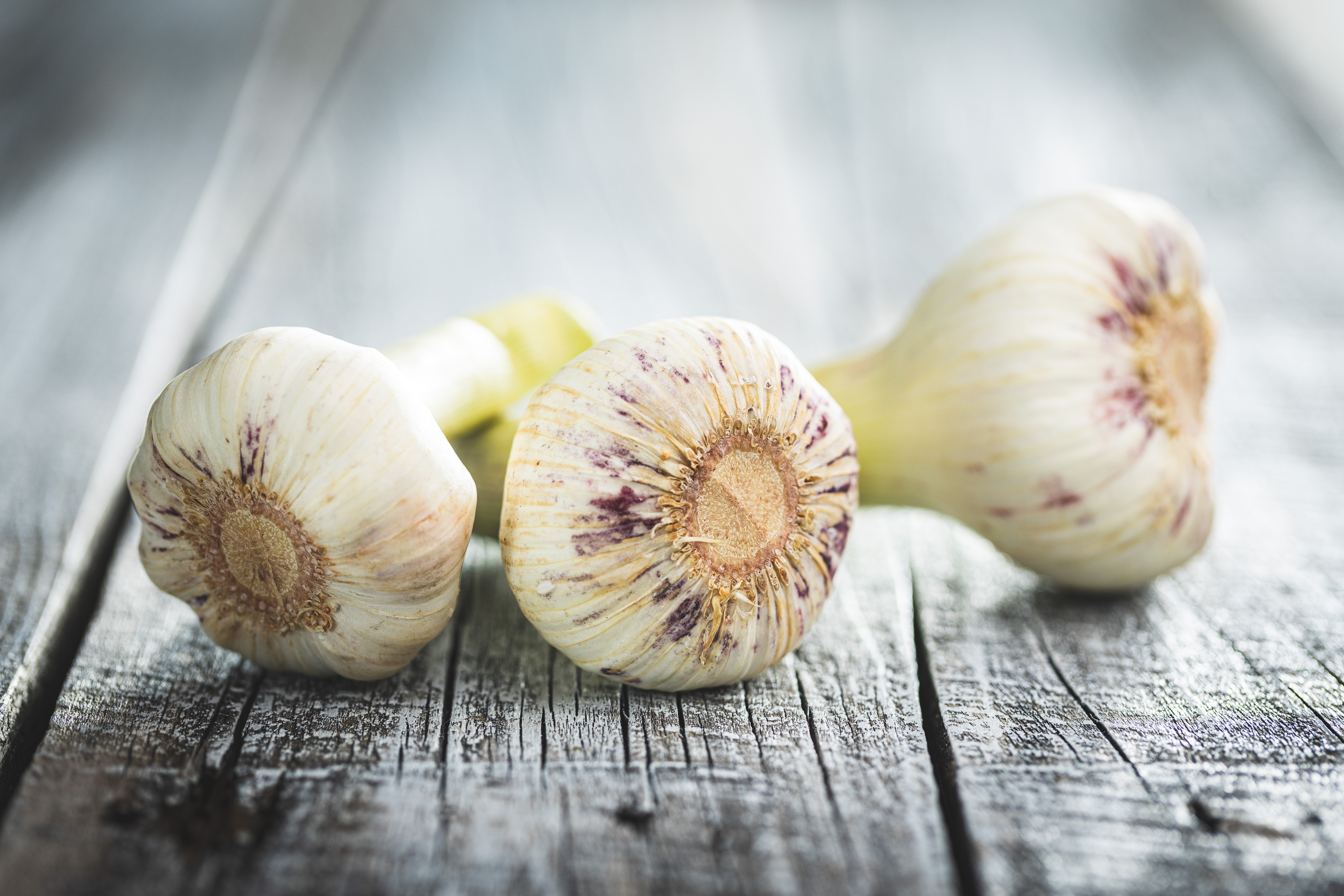
Garlic is not only a culinary staple but also a natural anti-inflammatory and immune-boosting superfood. It contains sulfur compounds, such as allicin, which help reduce inflammation and fight infections. Garlic has been linked to a lower risk of heart disease, high blood pressure, and even certain cancers. Use garlic to flavor soups, stews, and sauces, or roast whole garlic cloves for a sweet and mellow addition to meals. Minced garlic can be added to marinades, dressings, and sautéed vegetables. With its bold flavor and health benefits, garlic is an essential ingredient in an anti-inflammatory diet.
10. Green Tea
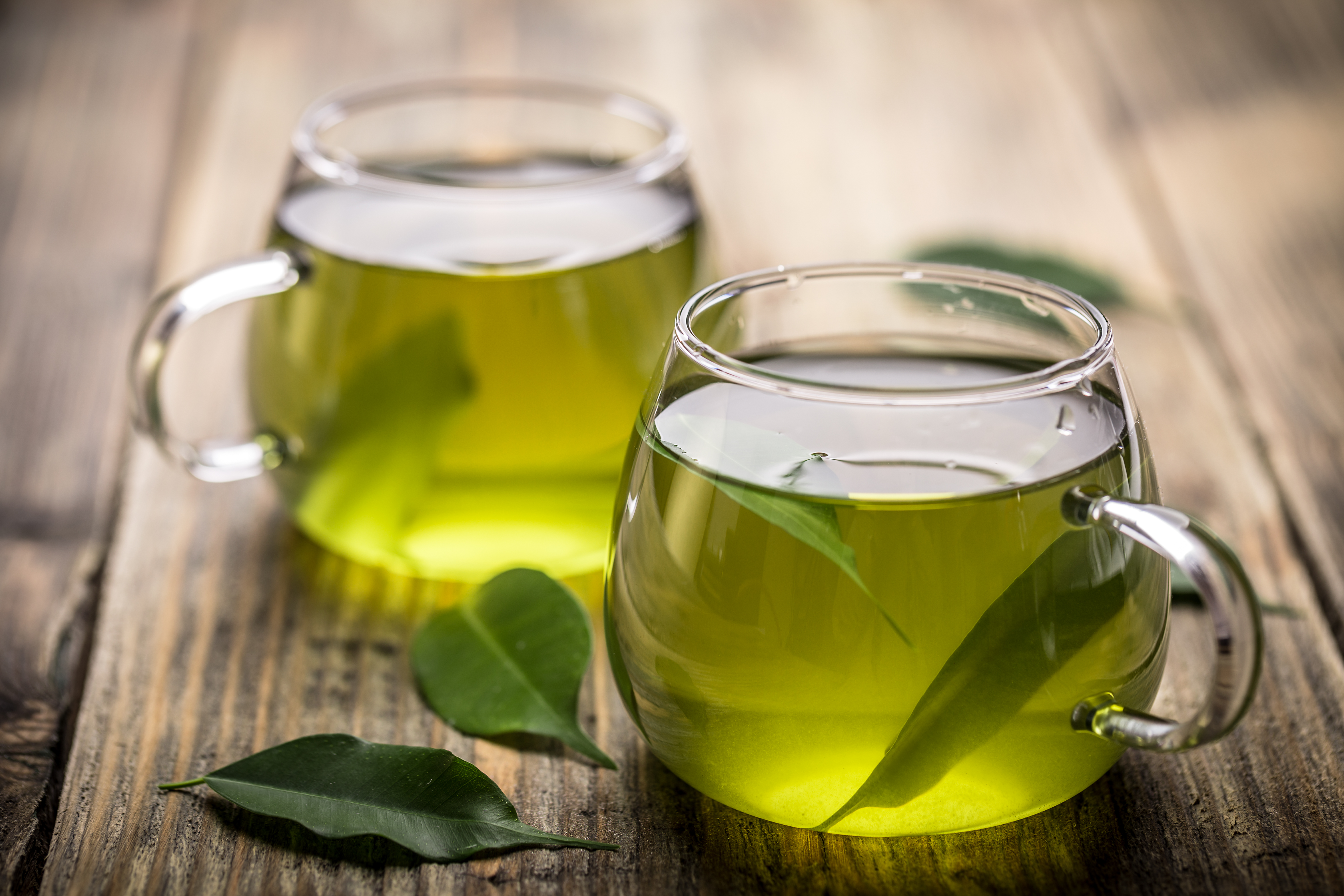
Green tea is a soothing beverage packed with antioxidants called catechins, which have powerful anti-inflammatory effects. It has been shown to reduce inflammation, lower the risk of heart disease, and even improve brain function. Green tea is also a great choice for weight management, as it can boost metabolism and help regulate blood sugar levels. Enjoy green tea hot or iced, and experiment with flavors by adding a slice of lemon, fresh mint, or a dash of honey. For a refreshing twist, use green tea as a base for smoothies or iced drinks. Drinking two to three cups a day can make a noticeable difference in reducing inflammation and improving overall health.
11. Avocado

Avocado is a creamy, nutrient-rich fruit packed with monounsaturated fats, fiber, and antioxidants. Its high content of lutein and vitamin E helps reduce inflammation and support heart and eye health. Avocados are also incredibly versatile, making them an easy addition to any meal. Add avocado to salads, smoothies, or grain bowls for a rich and satisfying boost. Mash it into guacamole or spread it on toast with a sprinkle of seeds for a quick snack. With its creamy texture and mild flavor, avocado is both delicious and highly nutritious.
12. Broccoli
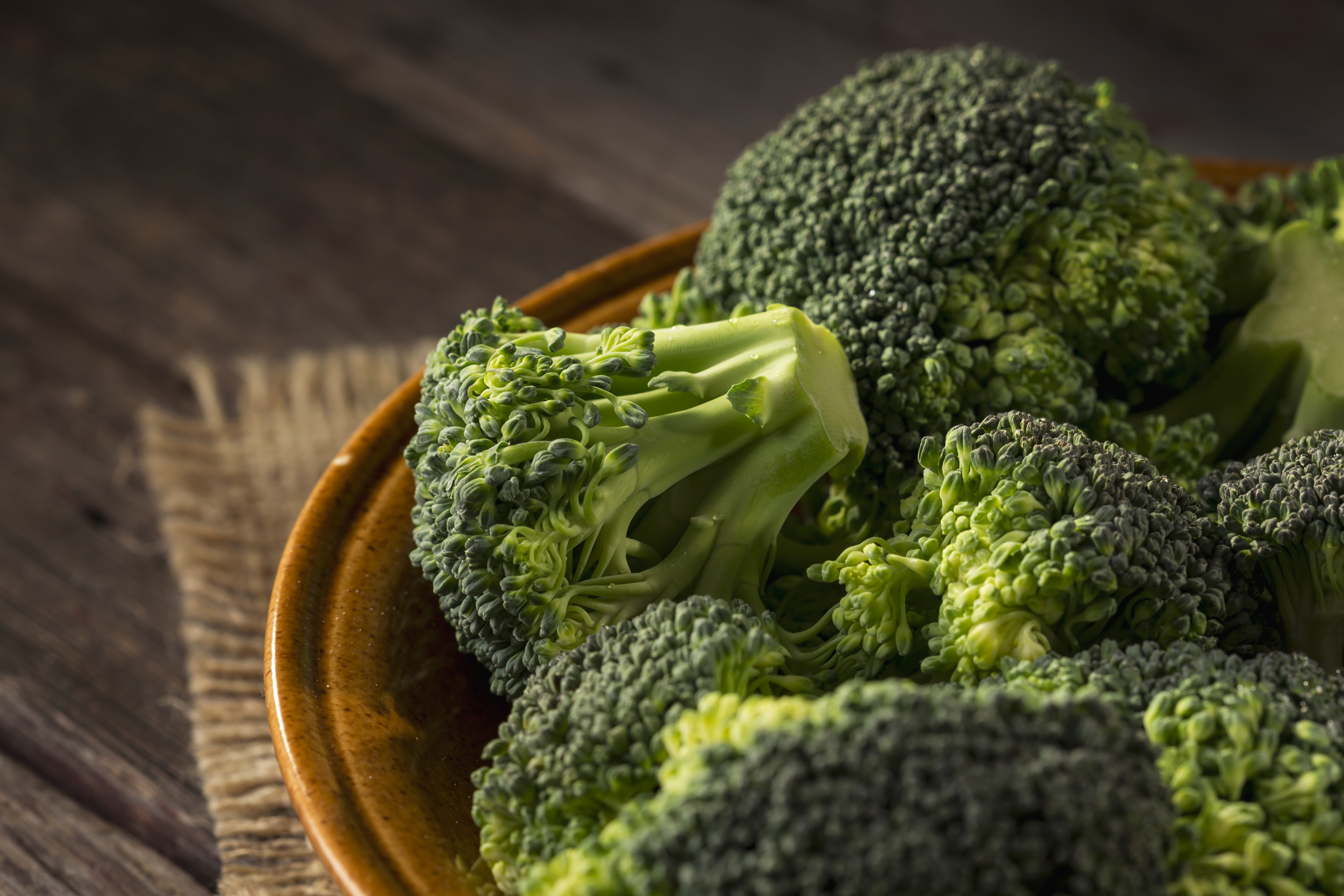
Broccoli is a cruciferous vegetable loaded with vitamins C and K, fiber, and sulforaphane, a compound known for its anti-inflammatory and cancer-fighting properties. Regular consumption of broccoli can help reduce the risk of chronic diseases and improve overall health. Enjoy broccoli steamed, roasted, or stir-fried with your favorite seasonings. Add it to soups, casseroles, or pasta dishes for an easy nutrient boost. Pair broccoli with garlic and olive oil for a simple yet flavorful side dish. Its versatility and health benefits make broccoli a staple in any anti-inflammatory diet.
13. Tart Cherries

Tart cherries, particularly Montmorency cherries, are packed with powerful antioxidants called anthocyanins, which help fight inflammation at the cellular level. These compounds work by blocking inflammatory enzymes, much like over-the-counter pain medications, making tart cherries a natural remedy for muscle soreness, arthritis, and joint pain. Studies have shown that regularly consuming tart cherry juice or whole cherries can significantly reduce post-workout muscle damage, speeding up recovery for athletes and active individuals. Additionally, tart cherries are one of the few natural sources of melatonin, a hormone that regulates sleep. This makes them an excellent choice for individuals struggling with insomnia or irregular sleep patterns. Whether eaten fresh, dried, or in juice form, tart cherries are a delicious and effective way to support joint health, muscle recovery, and restful sleep.
14. Seaweed
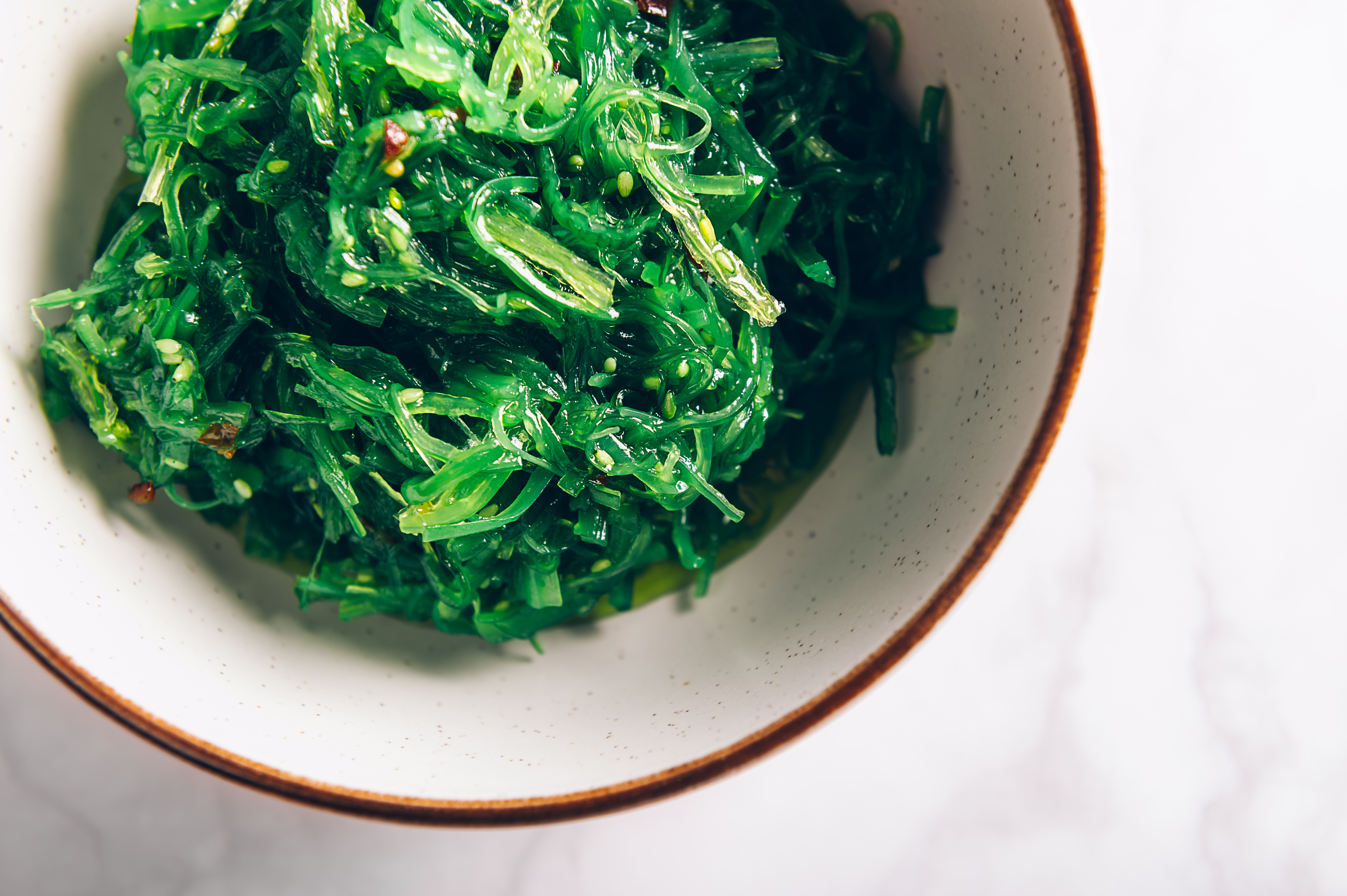
Seaweed, a staple in Asian cuisine, is one of the most nutrient-dense foods on the planet. Wakame, nori, kelp, and other seaweed varieties are packed with essential minerals such as iodine, which is crucial for thyroid function and hormone regulation. A well-functioning thyroid helps control metabolism and reduce systemic inflammation. Additionally, seaweed contains unique anti-inflammatory compounds like fucoidan, which has been studied for its ability to modulate immune response and reduce the risk of chronic diseases. Seaweed is also rich in polyphenols and antioxidants that protect cells from oxidative stress and support gut health by promoting the growth of beneficial bacteria. Whether consumed as sushi wraps, added to soups, or sprinkled over salads, seaweed is a simple and flavorful way to incorporate anti-inflammatory nutrients into your diet.
15. Beets
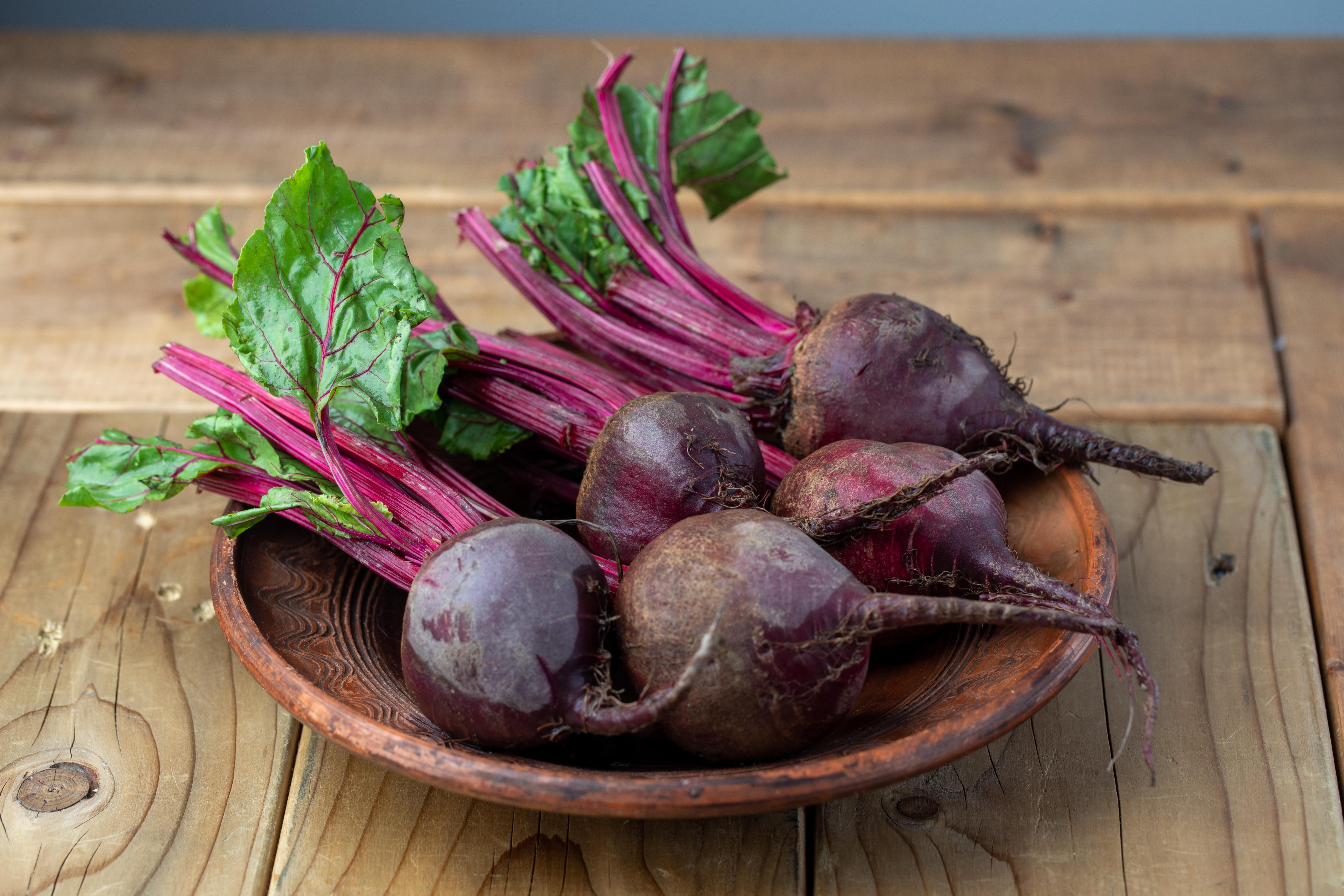
Beets are a vibrant, nutrient-rich root vegetable known for their high content of betalains, powerful plant pigments with strong anti-inflammatory and detoxifying properties. These compounds have been found to reduce inflammation markers in the body, making beets a great food for individuals dealing with chronic pain, high blood pressure, or oxidative stress. Beets also support heart health by improving blood flow and lowering blood pressure, thanks to their natural nitrate content, which helps relax blood vessels. Additionally, they promote liver detoxification by aiding the body in breaking down toxins. Whether roasted, juiced, or blended into smoothies, beets are a delicious way to boost your intake of anti-inflammatory compounds while supporting cardiovascular and detoxification processes.
16. Mushrooms
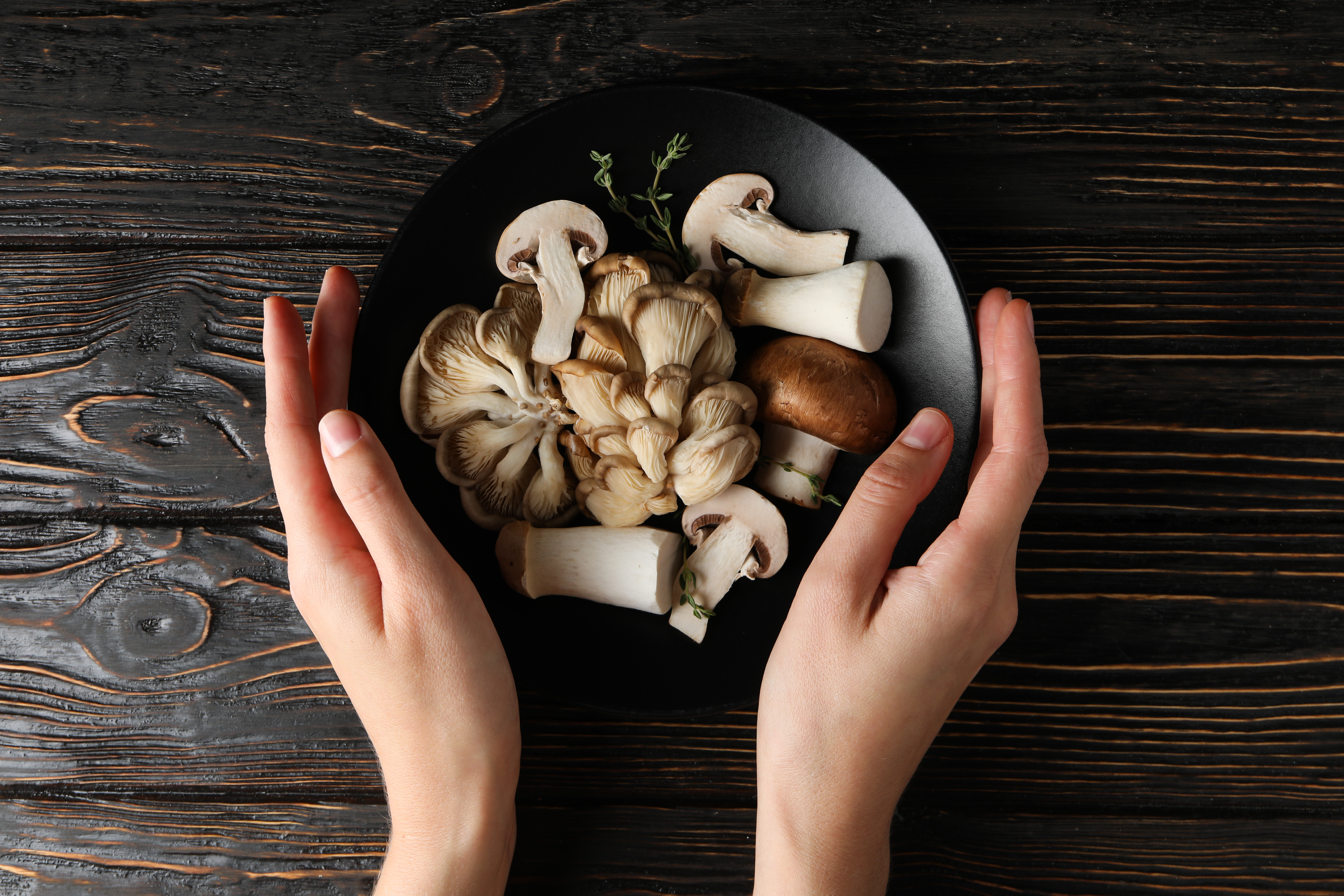
Certain mushrooms, including shiitake, maitake, reishi, and lion’s mane, are loaded with bioactive compounds that enhance immune function and fight inflammation. These fungi contain beta-glucans, powerful polysaccharides that help modulate the immune system, making them particularly beneficial for individuals dealing with autoimmune conditions. Additionally, mushrooms are a rich source of ergothioneine, an antioxidant that helps reduce oxidative stress and protect cells from damage. Reishi mushrooms, often used in traditional medicine, have been studied for their ability to lower stress hormones, combat inflammation, and support overall well-being. Mushrooms can easily be incorporated into meals by adding them to soups, stir-fries, or omelets, or consumed as a tea or supplement to reap their full anti-inflammatory benefits.
17. Dark Purple Grapes
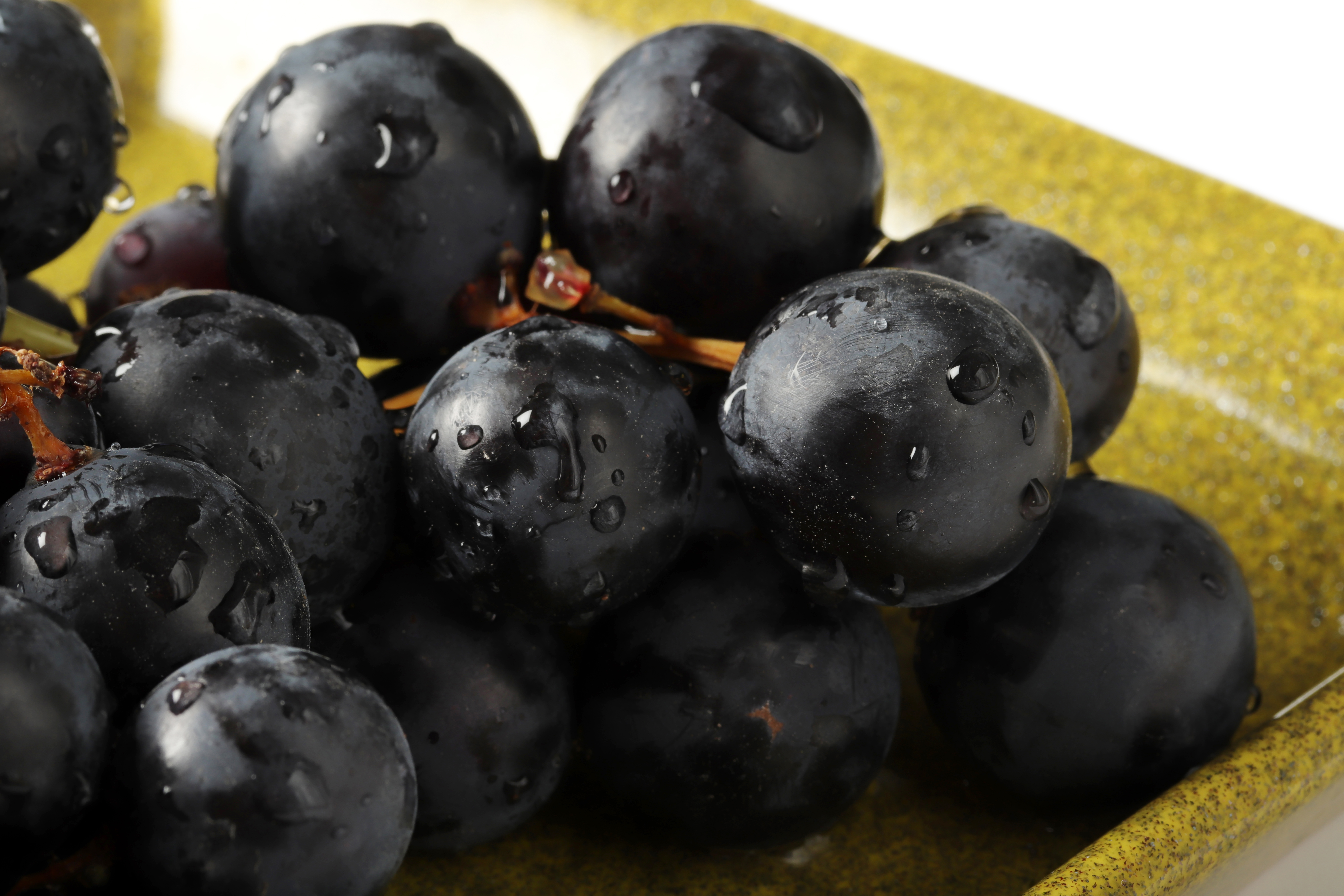
Dark-skinned grapes, particularly Concord and red grapes, are a rich source of resveratrol, a powerful antioxidant that has been linked to reduced inflammation, improved heart health, and increased longevity. Resveratrol works by inhibiting inflammatory pathways in the body, making grapes an excellent food for protecting against chronic conditions such as heart disease, diabetes, and neurodegenerative disorders. These grapes are also packed with polyphenols, which support circulation, lower blood pressure, and promote healthy blood vessels. Additionally, they contain natural compounds that help reduce oxidative stress and improve brain function. Eating dark grapes as a snack, blending them into smoothies, or freezing them for a refreshing treat are great ways to enjoy their health benefits while keeping inflammation in check.
18. Black Beans
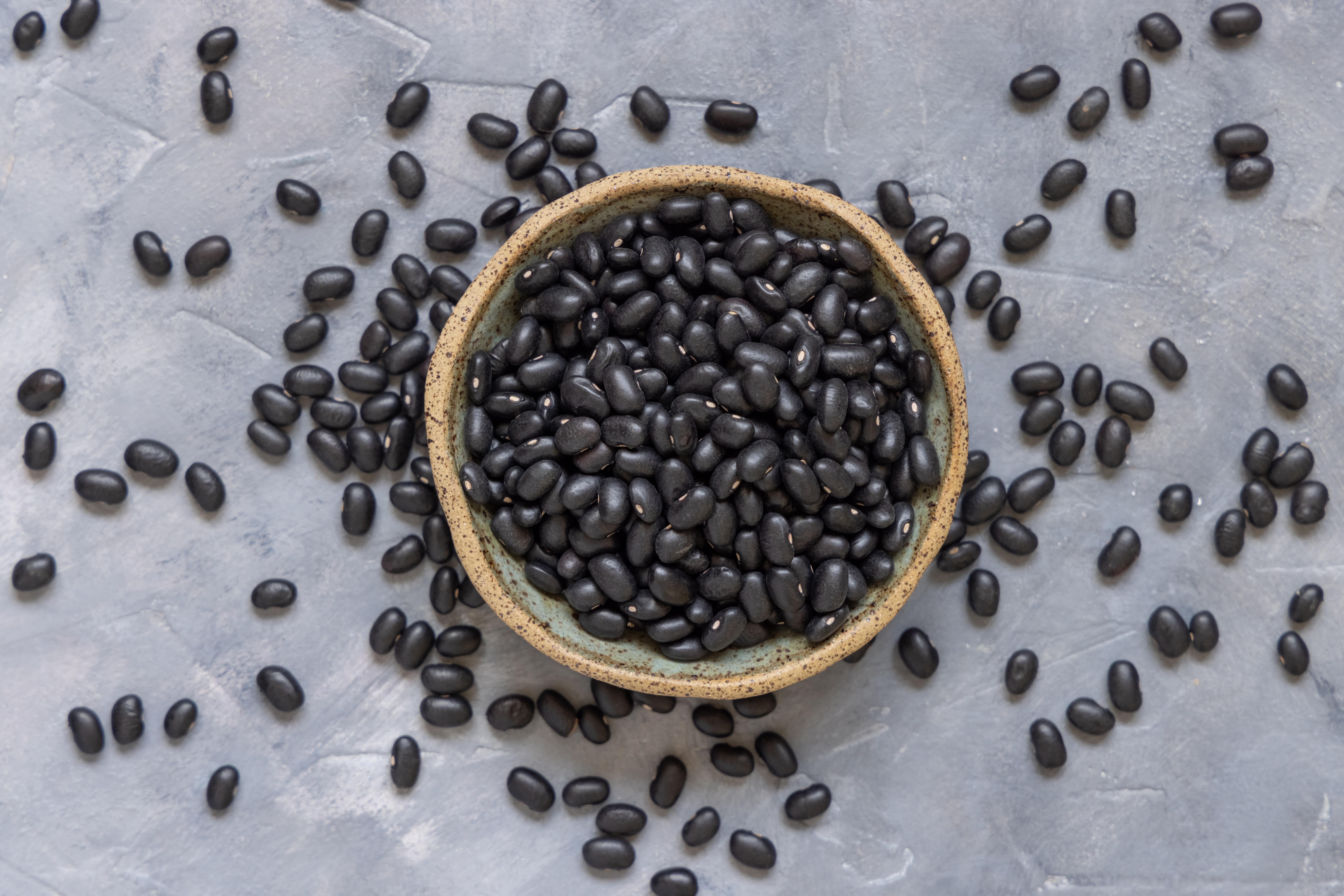
Black beans are a fiber-rich, plant-based protein source that offers a powerful combination of nutrients to fight inflammation and regulate blood sugar levels. They are high in flavonoids, which have been shown to reduce inflammatory markers and support heart health. Additionally, their fiber content helps promote healthy digestion and a balanced gut microbiome, which plays a crucial role in controlling inflammation throughout the body. Black beans are also an excellent source of plant-based iron, which is essential for oxygen transport and energy production. Consuming black beans regularly can support cardiovascular health, regulate cholesterol levels, and provide long-lasting energy. Enjoy them in soups, salads, or grain bowls for a filling and nutritious addition to your anti-inflammatory diet.
19. Kimchi
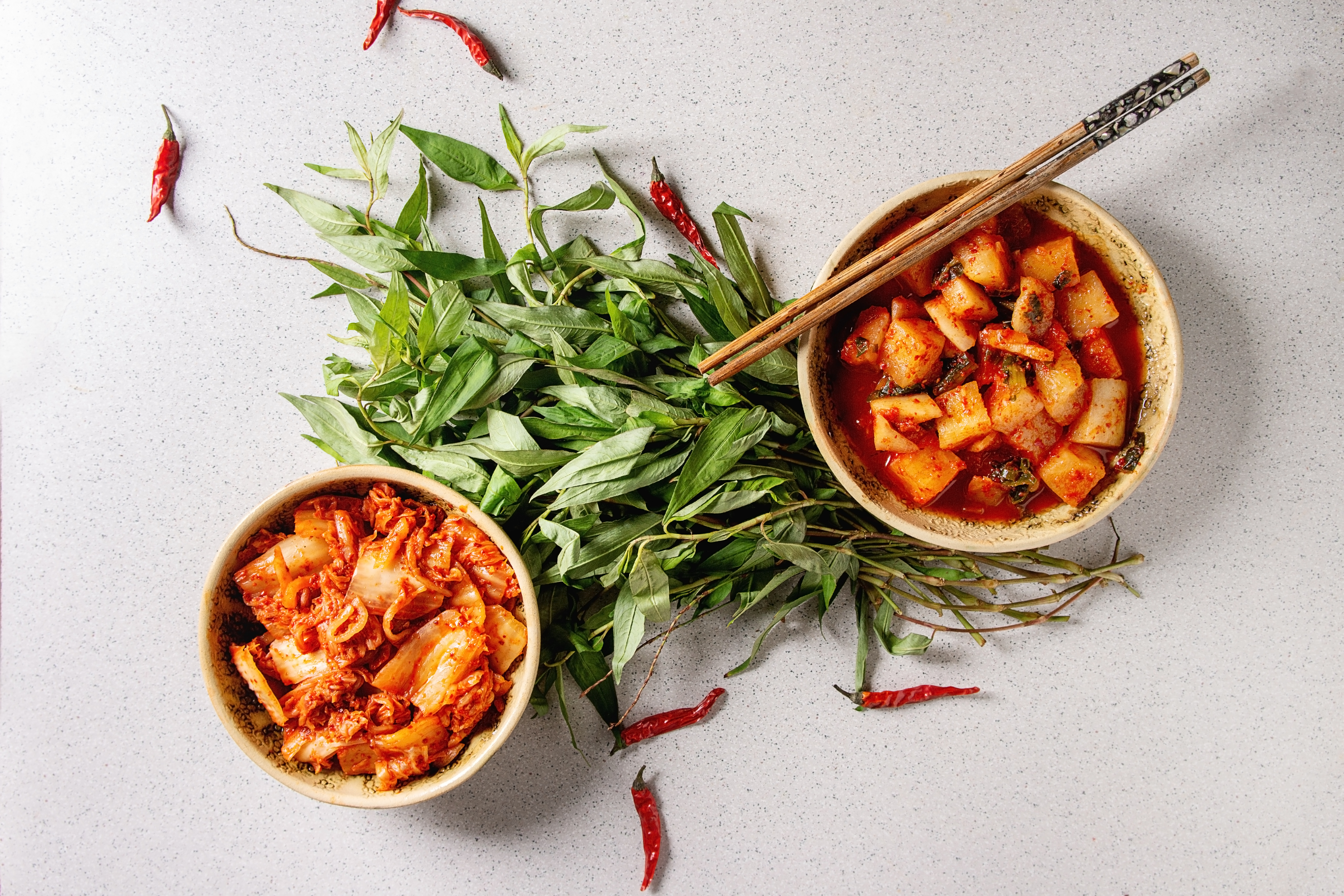
Kimchi, a traditional Korean dish made from fermented vegetables—typically cabbage and radishes—is a powerhouse of gut-friendly probiotics, vitamins, and anti-inflammatory compounds. The fermentation process enhances the nutritional profile of kimchi, making it rich in beneficial bacteria that promote digestive health and strengthen the immune system. The probiotics found in kimchi, primarily Lactobacillus strains, support a balanced gut microbiome, which plays a crucial role in reducing systemic inflammation throughout the body. Additionally, kimchi is packed with antioxidants and bioactive compounds, such as capsaicin from chili peppers and allicin from garlic, both of which have been shown to combat oxidative stress and inflammation. Regular consumption of kimchi has been linked to improved digestion, lower cholesterol levels, and even enhanced cognitive function. Enjoy it as a side dish, mix it into stir-fries, or add it to soups for a tangy, flavorful, and health-boosting addition to your meals.
20. Extra Dark Chocolate

Dark chocolate—particularly varieties with 85% or higher cocoa content—is more than just a delicious treat; it’s a potent anti-inflammatory food packed with powerful antioxidants called flavonoids. These flavonoids help reduce oxidative stress, combat free radicals, and lower inflammation throughout the body. One of the key flavonoids in dark chocolate is epicatechin, which has been shown to improve blood flow, support cardiovascular health, and even enhance brain function. Additionally, dark chocolate contains magnesium, a mineral that plays a vital role in reducing stress-induced inflammation and supporting muscle and nerve function. Unlike milk chocolate, which often contains high amounts of sugar and dairy, extra dark chocolate retains its beneficial compounds with minimal additives. To maximize its health benefits, opt for dark chocolate with minimal added sugar and pair it with nuts or berries for an even greater antioxidant boost. Enjoy it in moderation as part of a balanced diet to satisfy your sweet tooth while promoting overall well-being.
21. Pomegranates

Pomegranates are one of nature’s most potent anti-inflammatory superfoods, thanks to their high concentration of polyphenols and punicalagins—two powerful antioxidants that help protect against chronic inflammation and oxidative stress. These compounds have been shown to reduce markers of inflammation in the body, particularly in individuals with conditions like heart disease, arthritis, and neurodegenerative disorders. Pomegranates also support cardiovascular health by improving blood circulation and reducing arterial plaque buildup, which helps lower the risk of heart disease. Additionally, their high vitamin C content boosts immune function and promotes healthy skin. The seeds, known as arils, are not only deliciously juicy but also packed with fiber, which supports gut health and aids digestion. Pomegranate juice is another way to reap the benefits, but be mindful of added sugars in store-bought varieties. Add pomegranate seeds to salads, yogurt, or smoothies for a burst of flavor and a nutritional punch that keeps inflammation at bay.
22. Hemp Seeds
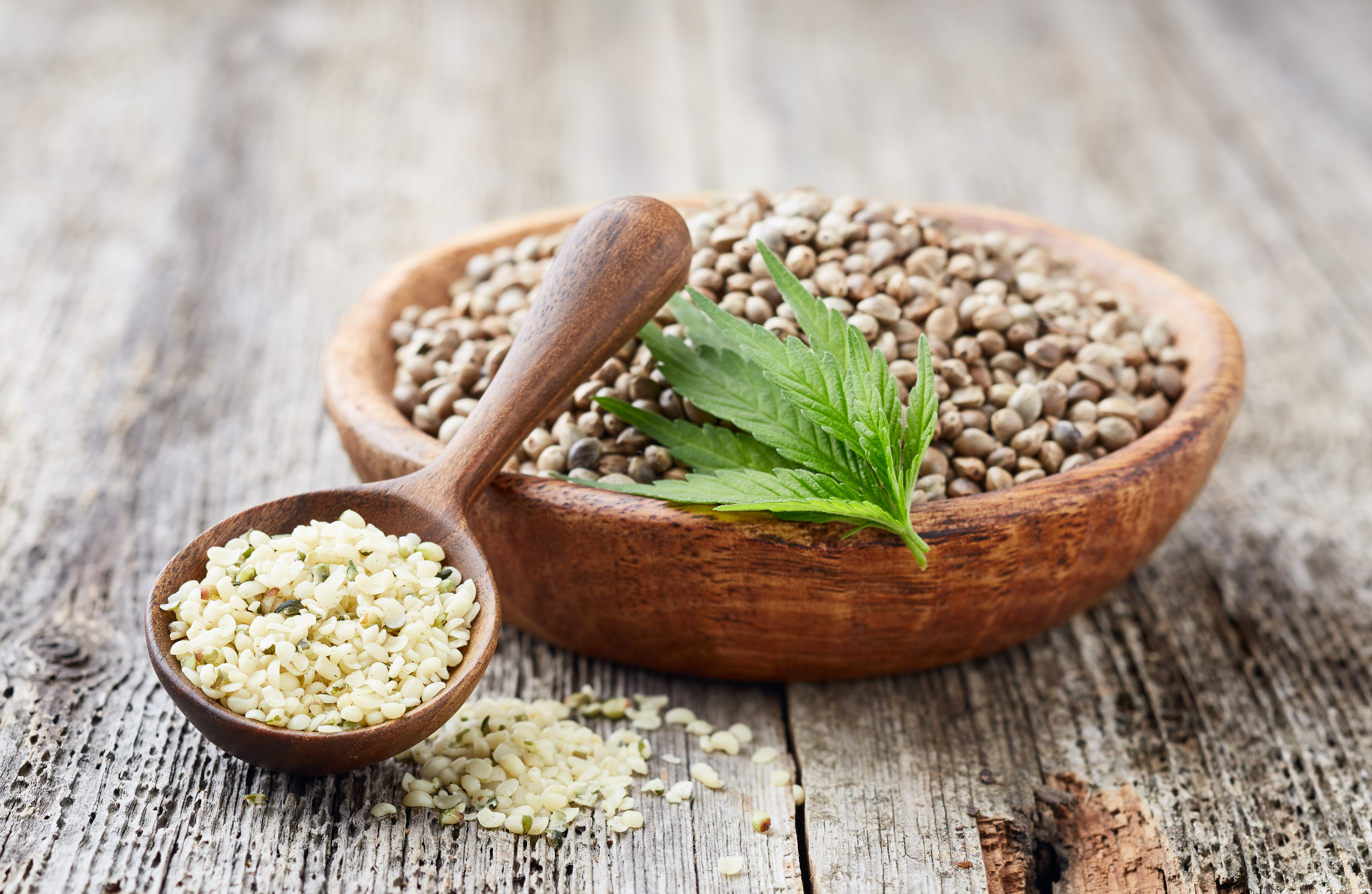
Hemp seeds are a nutritional powerhouse, offering an ideal balance of omega-3 and omega-6 fatty acids, which help regulate inflammation and support joint, brain, and heart health. Unlike many other plant-based sources of omega-3s, hemp seeds contain gamma-linolenic acid (GLA), a rare type of fatty acid that has been shown to reduce chronic inflammation and improve symptoms of conditions like arthritis and eczema. They are also packed with high-quality protein, containing all nine essential amino acids, making them a fantastic plant-based protein source. In addition to their healthy fats and protein content, hemp seeds are rich in magnesium, which plays a crucial role in muscle relaxation, nerve function, and stress reduction. Their mild, nutty flavor makes them a versatile addition to many dishes—sprinkle them over salads, blend them into smoothies, mix them into yogurt, or incorporate them into homemade granola. Whether eaten raw, ground into hemp protein, or used in hemp milk, these tiny seeds deliver big health benefits that help combat inflammation and support overall well-being.
23. Maca Root – The Energy-Boosting Adaptogen
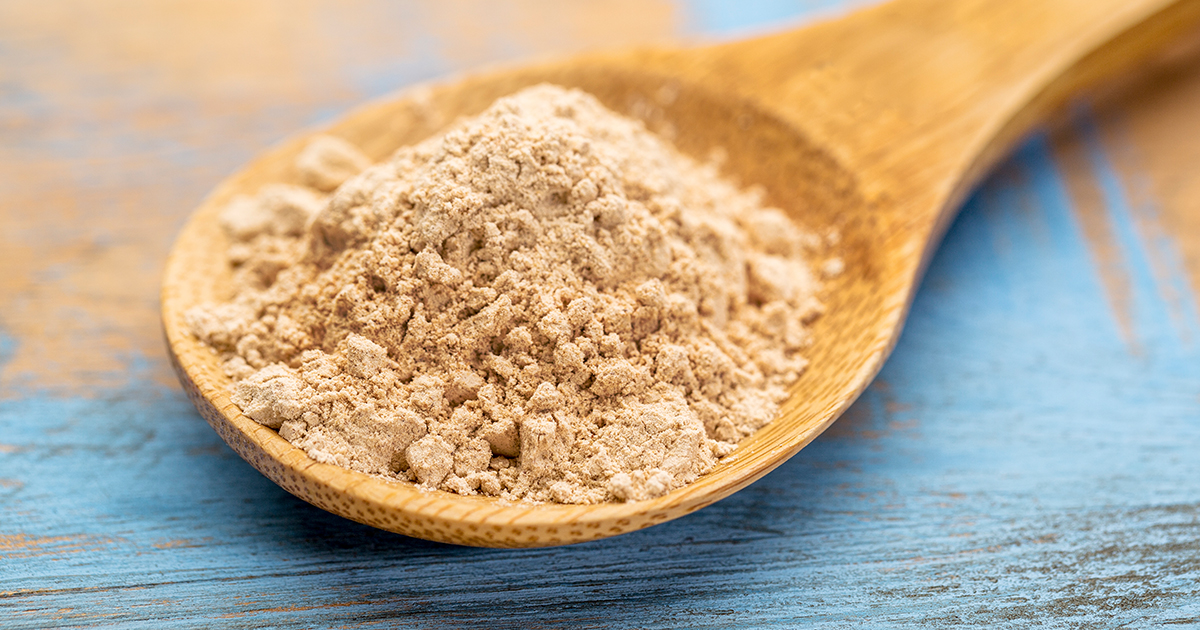
Maca root, a superfood native to the Peruvian Andes, is known for its ability to support hormone balance, enhance stamina, and reduce inflammation. It contains polyphenols and glucosinolates, which help regulate stress and reduce oxidative damage in the body. Maca is also an adaptogen, meaning it helps your body adapt to stressors and supports adrenal function—both critical in managing inflammation levels. How to use it: Add maca powder to smoothies, coffee, or oatmeal for a natural energy boost. It has a malty, caramel-like taste that pairs well with nutty and chocolate flavors.
24. Basil – The Anti-Inflammatory Herb with a Kick
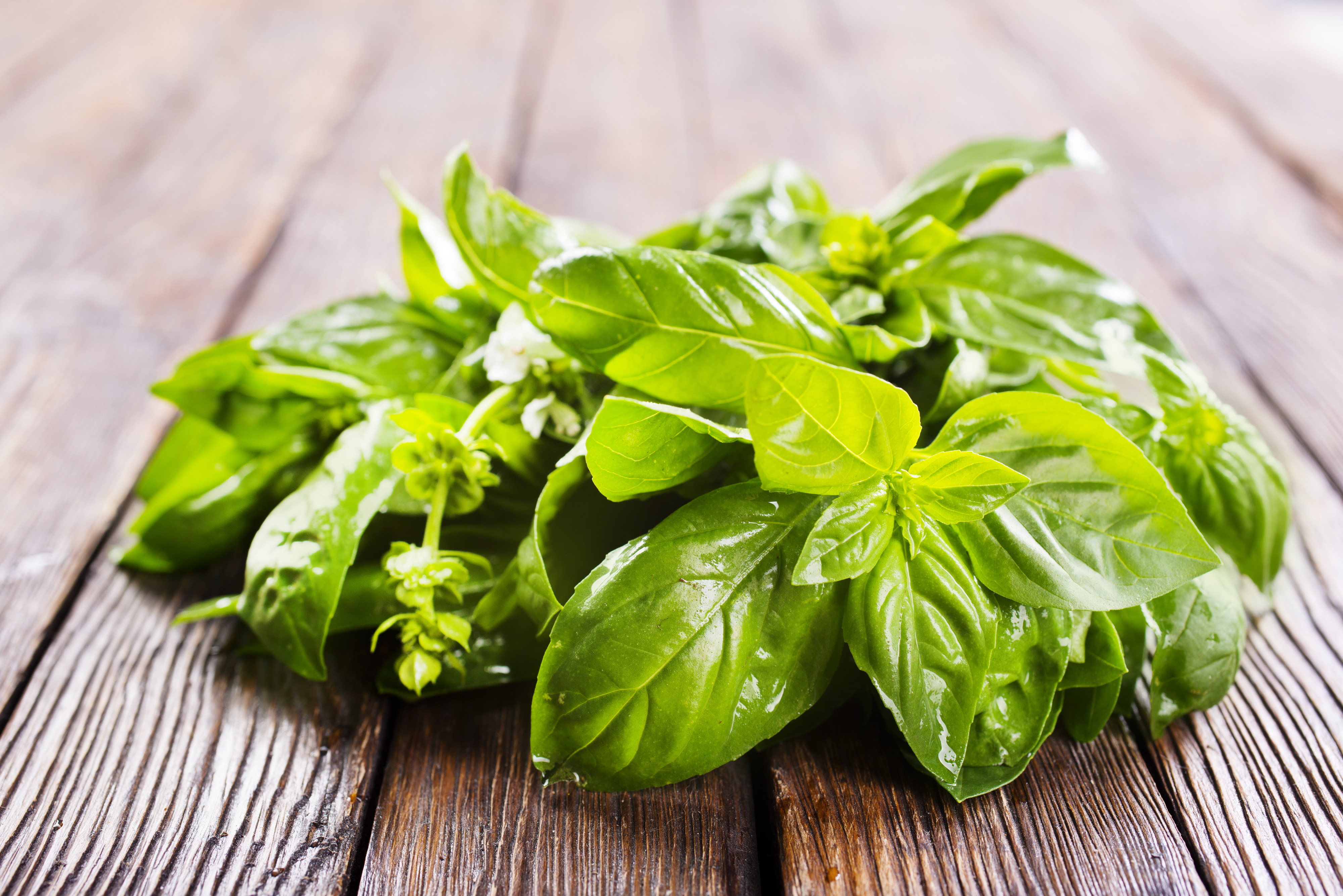
Basil isn’t just a garnish—it’s an anti-inflammatory powerhouse rich in eugenol, a compound that helps block enzymes that cause swelling. This fragrant herb has also been studied for its ability to support liver function, balance blood sugar, and fight free radicals. In particular, holy basil (tulsi) is a powerful adaptogenic herb that helps regulate stress, which is a major driver of inflammation. How to use it: Add fresh basil to salads, soups, or sauces. Holy basil tea is another way to reap its benefits.
25. Pumpkin Seeds – Tiny Seeds, Big Benefits
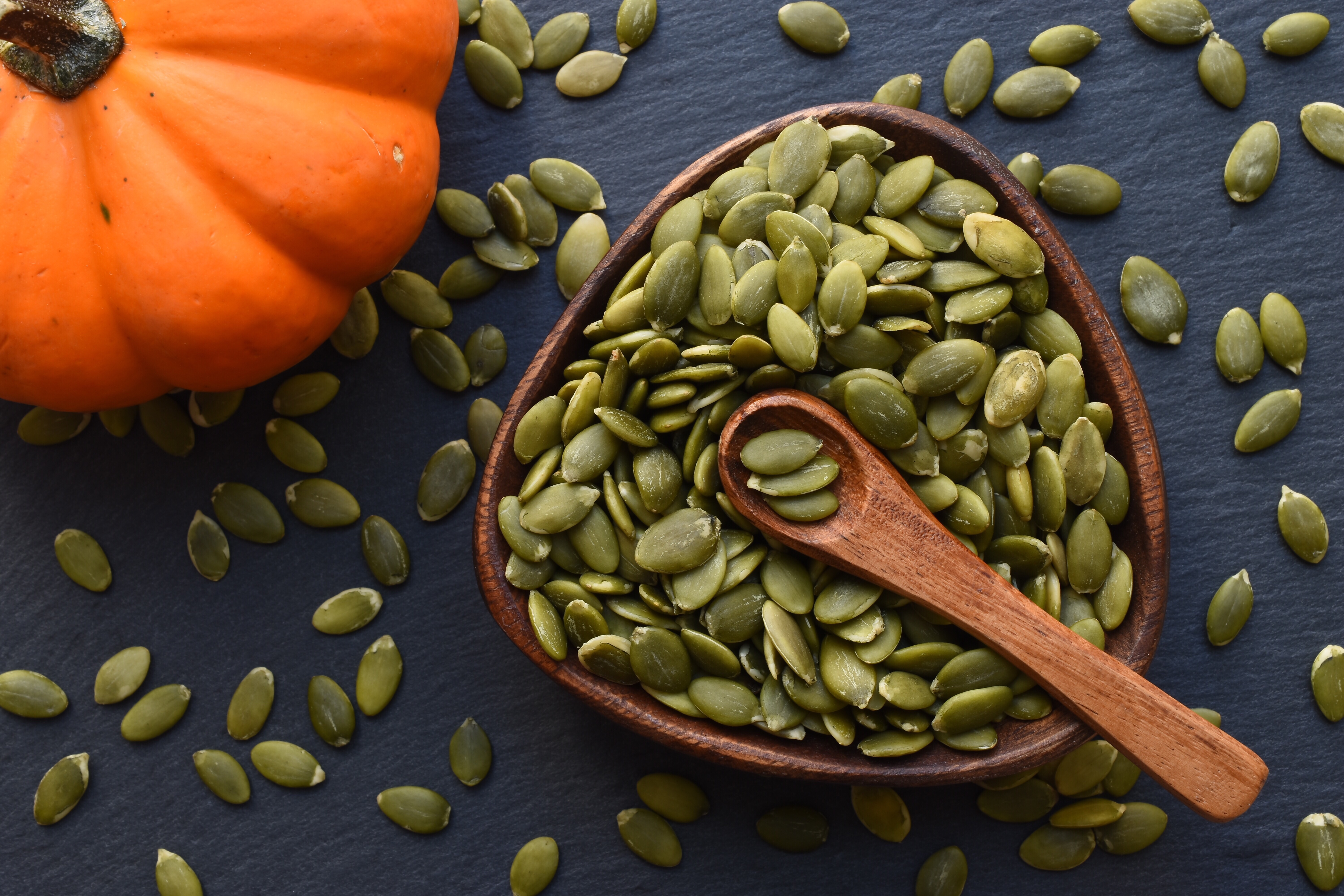
Pumpkin seeds (also called pepitas) are loaded with zinc, magnesium, and omega-3 fatty acids, all of which play a crucial role in reducing inflammation, supporting immune function, and improving heart health. Their magnesium content helps relax muscles and nerves, which can be beneficial for those experiencing chronic pain or tension from inflammation-related conditions. How to use it: Eat them as a snack, blend them into pesto, or sprinkle them on salads, yogurt, or oatmeal.
26. Black Rice – The Forbidden Superfood
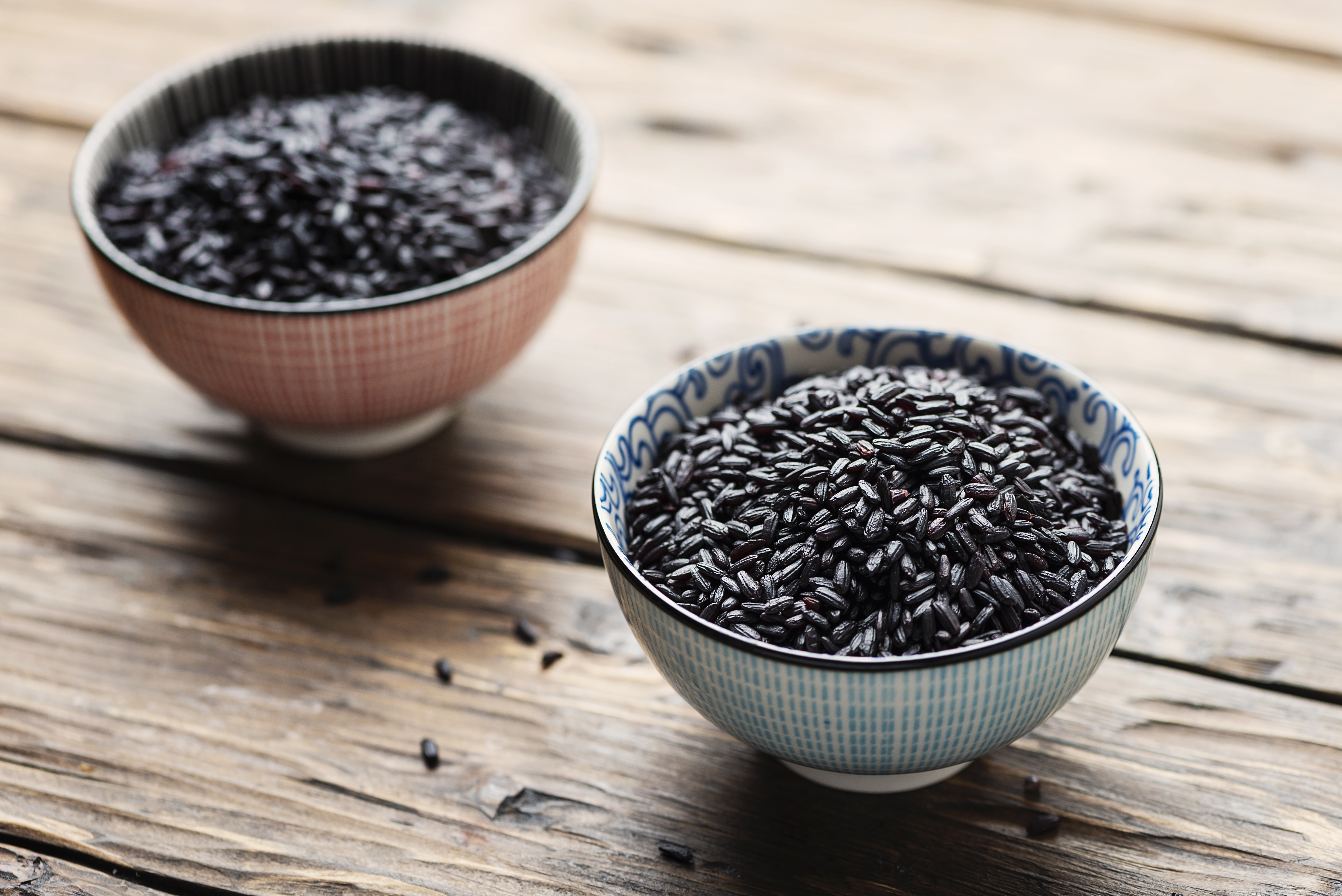
Nicknamed "forbidden rice" because it was once reserved for Chinese royalty, black rice is an antioxidant-rich grain with one of the highest levels of anthocyanins, the same compounds that make blueberries an anti-inflammatory superfood. It has been shown to reduce oxidative stress, support heart health, and improve liver detoxification. How to use it: Use black rice instead of white or brown rice for a nutrition-packed base in grain bowls, stir-fries, or risottos.
27. Mustard Greens – The Detoxifying Leafy Green
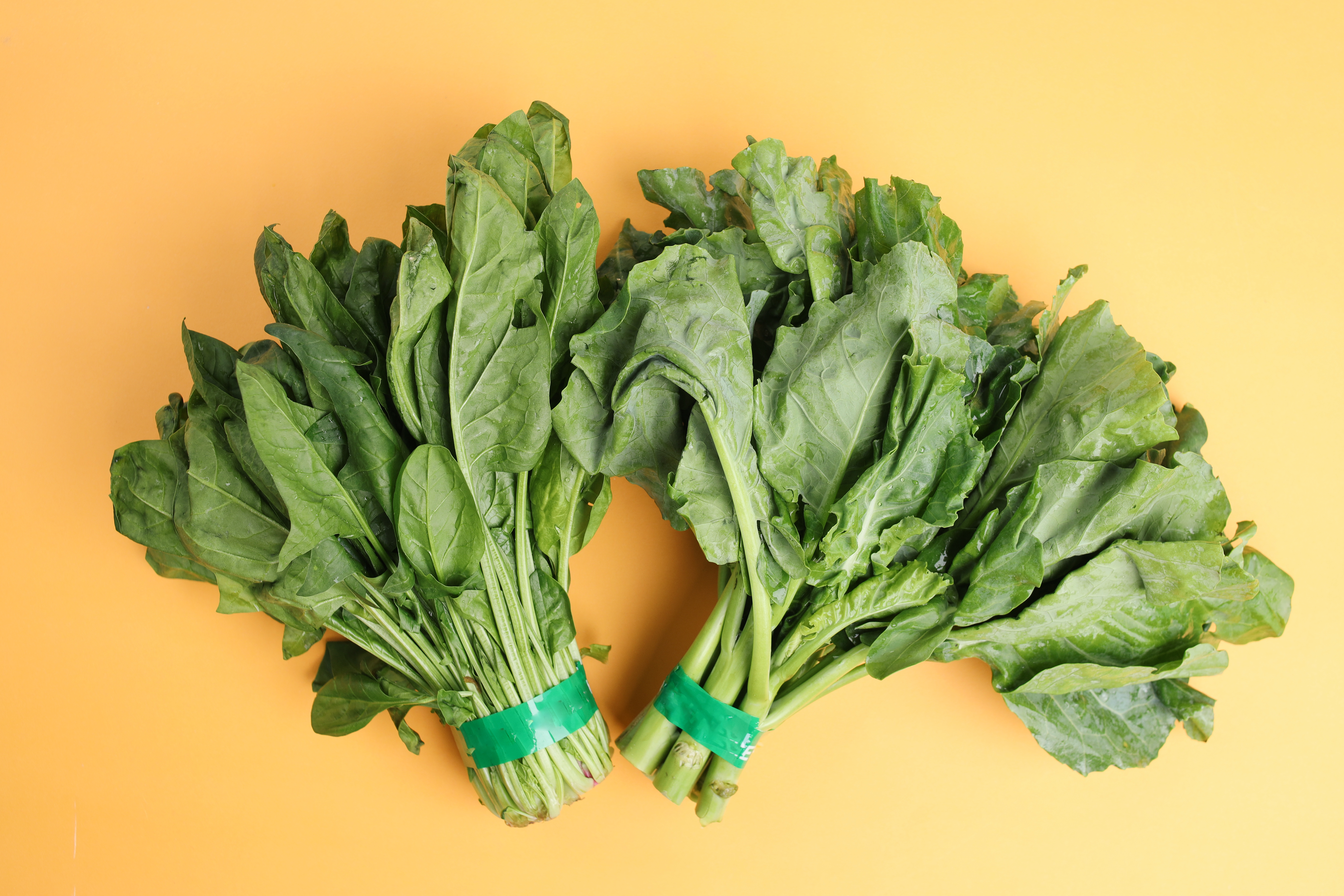
Mustard greens belong to the cruciferous vegetable family, alongside kale, Brussels sprouts, and broccoli. They are high in glucosinolates, compounds that help detoxify the liver and reduce chronic inflammation. Mustard greens also support digestion and provide a natural source of quercetin, an anti-inflammatory flavonoid known for improving immune response and allergy relief. How to use it: Sauté them with garlic and olive oil, add them to soups, or blend them into a green smoothie for a peppery kick.
28. Fenugreek – The Gut-Friendly Spice
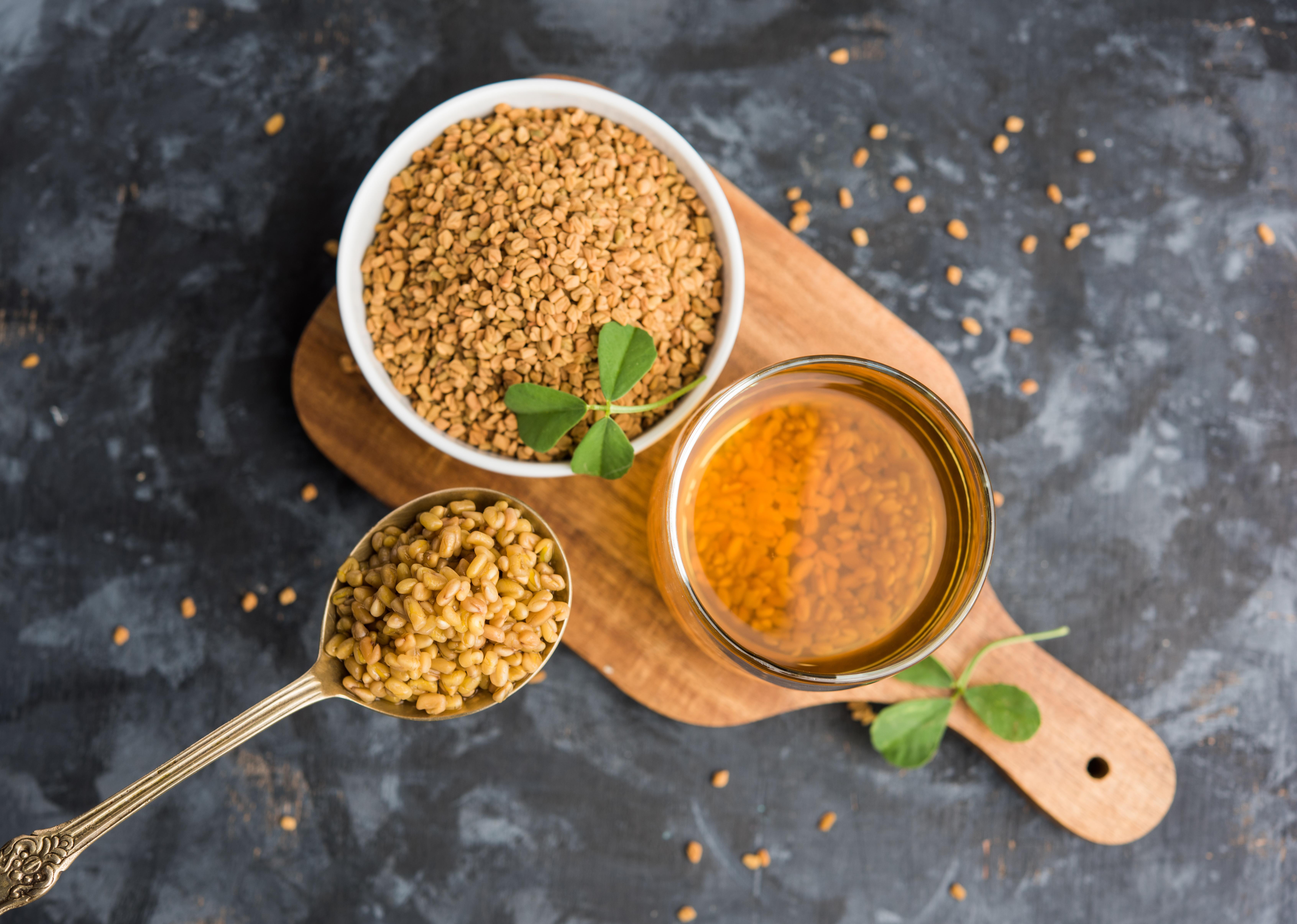
Fenugreek is a lesser-known anti-inflammatory food that has been used in Ayurvedic medicine for centuries. It contains saponins and flavonoids, which help reduce swelling, balance blood sugar, and promote gut health—an essential component in reducing systemic inflammation. It also has a mild pain-relieving effect, making it beneficial for people with arthritis or muscle soreness. How to use it: Add fenugreek powder to soups, stews, or curries, or steep the seeds into a tea.
29. Tart Green Apples – The Polyphenol Powerhouse
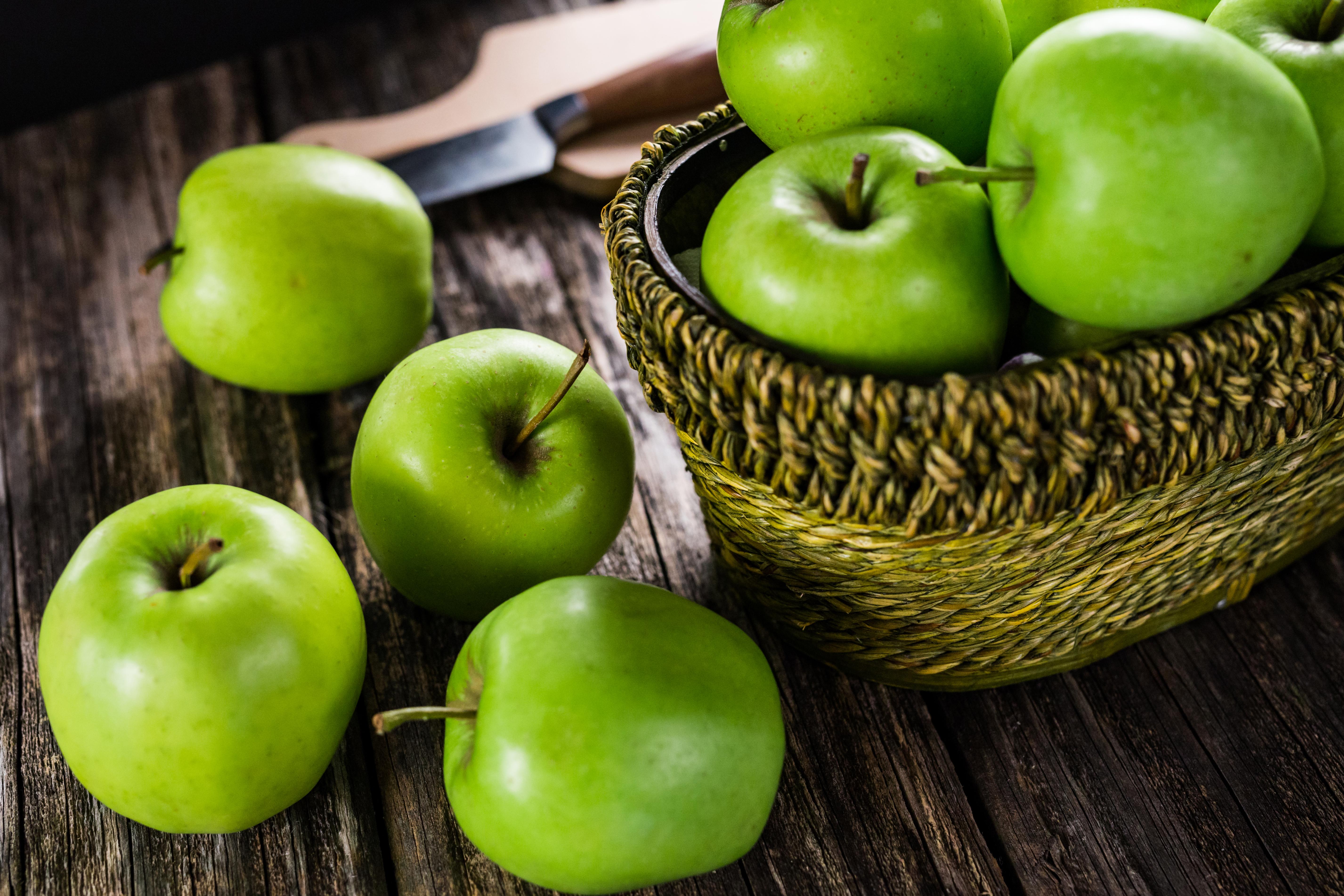
Green apples (especially Granny Smiths) are packed with polyphenols and pectin fiber, which reduce inflammation in the gut, lower cholesterol, and promote healthy digestion. The high fiber content feeds good gut bacteria, which plays a major role in controlling systemic inflammation. Plus, their tartness means they’re naturally lower in sugar than other fruits. How to use it: Eat them as a snack with nut butter, blend them into smoothies, or dice them into salads.
30. Cloves – The Spice with the Highest Antioxidant Content
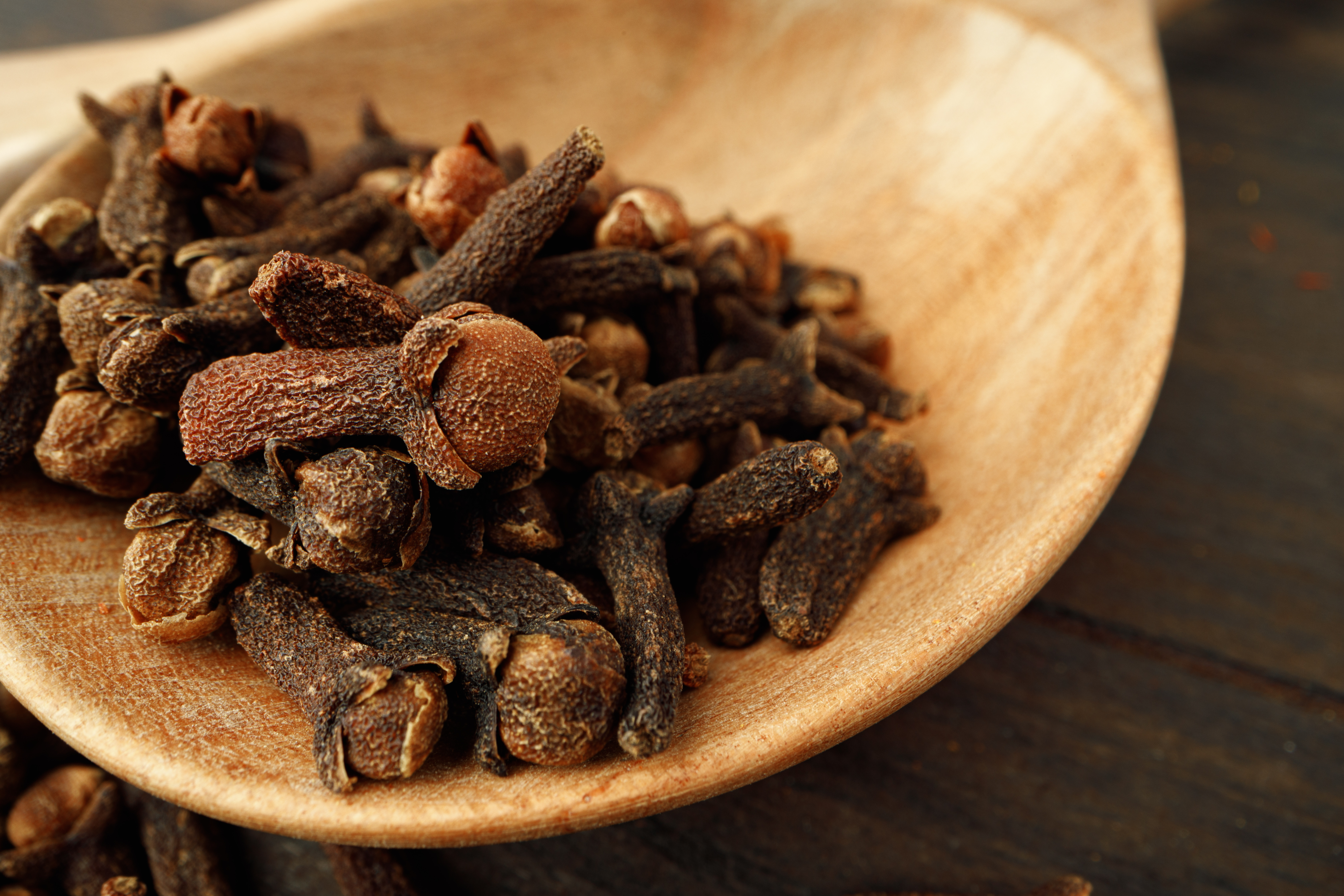
Did you know that cloves have more antioxidants than any other spice? They contain eugenol, a compound that has been shown to reduce oxidative stress, protect against joint inflammation, and promote gut health. Cloves also have antimicrobial properties, which can help protect the body from infections that trigger inflammation. How to use it: Add ground cloves to baked goods, sprinkle them into coffee or tea, or use them in spice rubs for meats and vegetables.
31. Shiitake Mushrooms – The Immune-Boosting Fungi
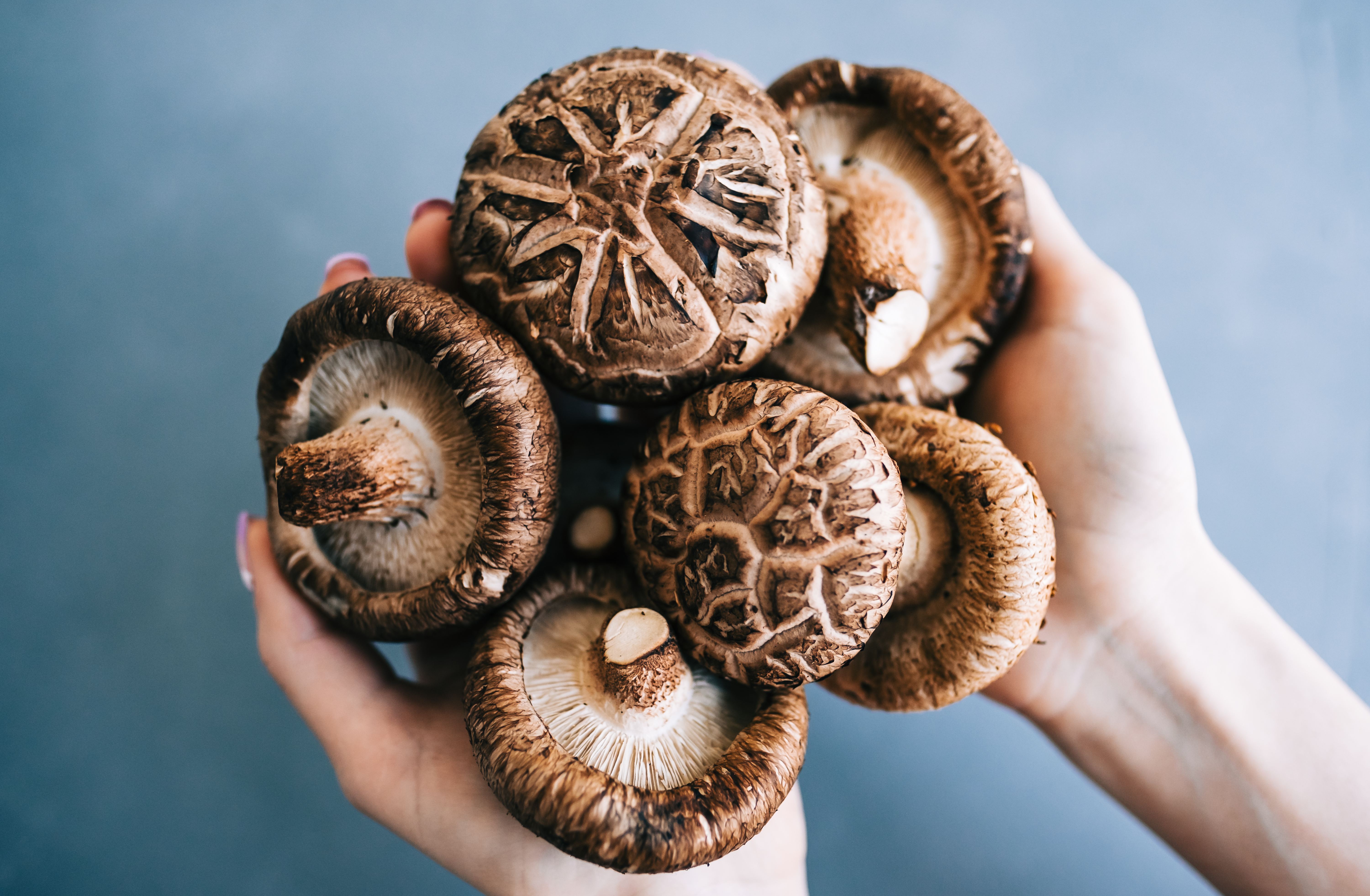
Shiitake mushrooms contain lentinan, a powerful immune-boosting compound that has been used in traditional medicine to reduce inflammation and fight disease. They also contain beta-glucans, which support gut health and immune function—both key players in controlling chronic inflammation. How to use it: Sauté them in olive oil and garlic, add them to soups, or use them in stir-fries.
32. Ceylon Cinnamon – The Blood Sugar Balancer
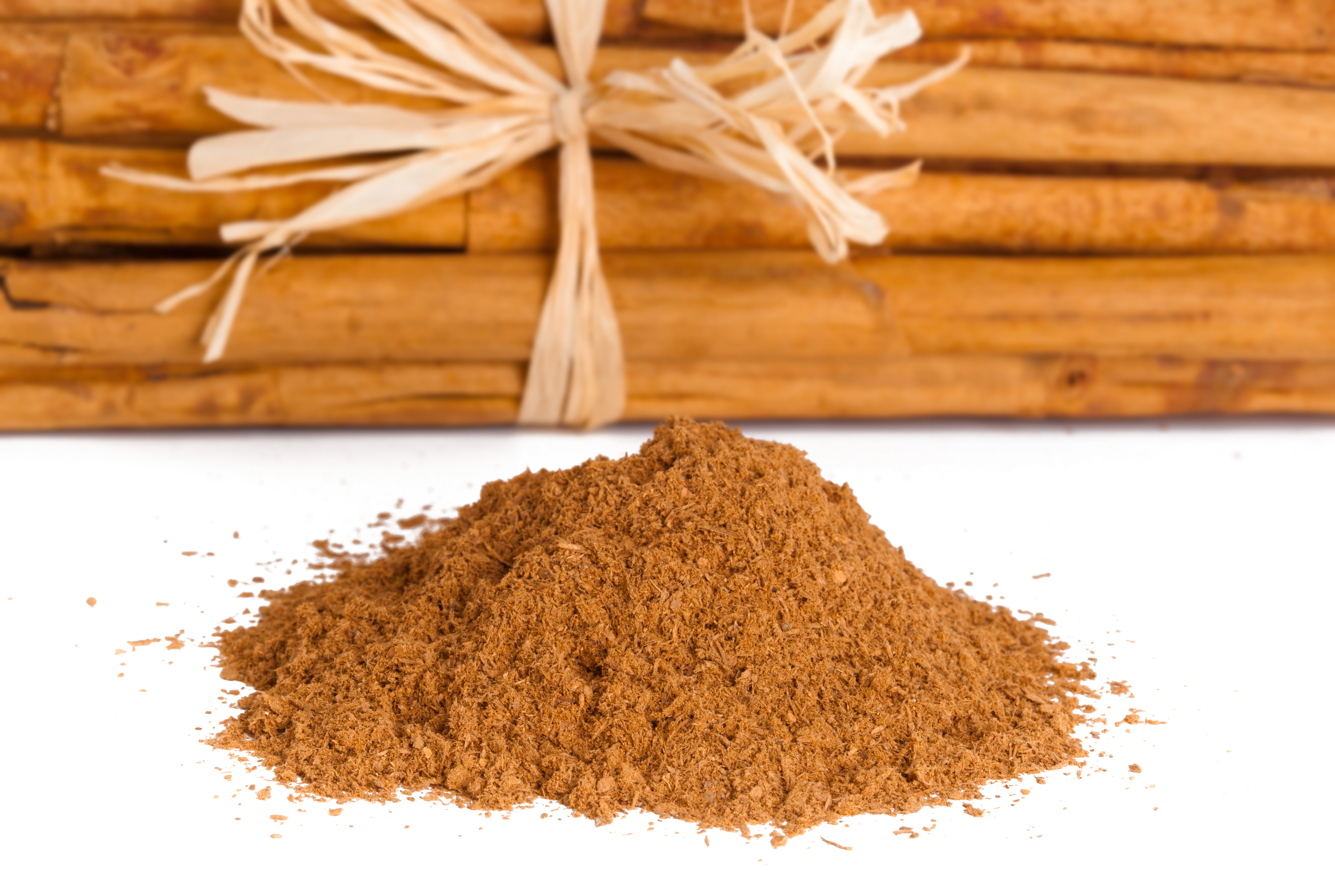
Cinnamon isn’t just a delicious spice—it’s a powerful anti-inflammatory agent. But not all cinnamon is created equal. Ceylon cinnamon (also known as "true cinnamon") contains more antioxidants and less coumarin, a compound that can be harmful in high doses. Cinnamon has been shown to reduce inflammation, stabilize blood sugar, and improve circulation. How to use it: Sprinkle it on oatmeal, coffee, or yogurt. You can also steep it into tea or use it in baking.
Food For Thought

Inflammation is a natural process that, when balanced, plays a critical role in healing and protecting the body. However, chronic inflammation can disrupt this balance, leading to serious health complications over time. By focusing on nutrient-rich, anti-inflammatory foods, you can take control of your well-being and lower your risk of chronic diseases. Whether it’s adding a handful of berries to your morning oatmeal, cooking with olive oil, or enjoying a green tea break during the day, these small changes can add up to big benefits. Remember, the journey toward better health starts with one step. Experiment with these foods, incorporate them into your meals, and enjoy the process of nourishing your body. Over time, these healthy choices will become habits, and you’ll feel the difference in your energy, mood, and overall vitality. With the power of anti-inflammatory foods, you can take a proactive and enjoyable approach to a healthier, more vibrant life.